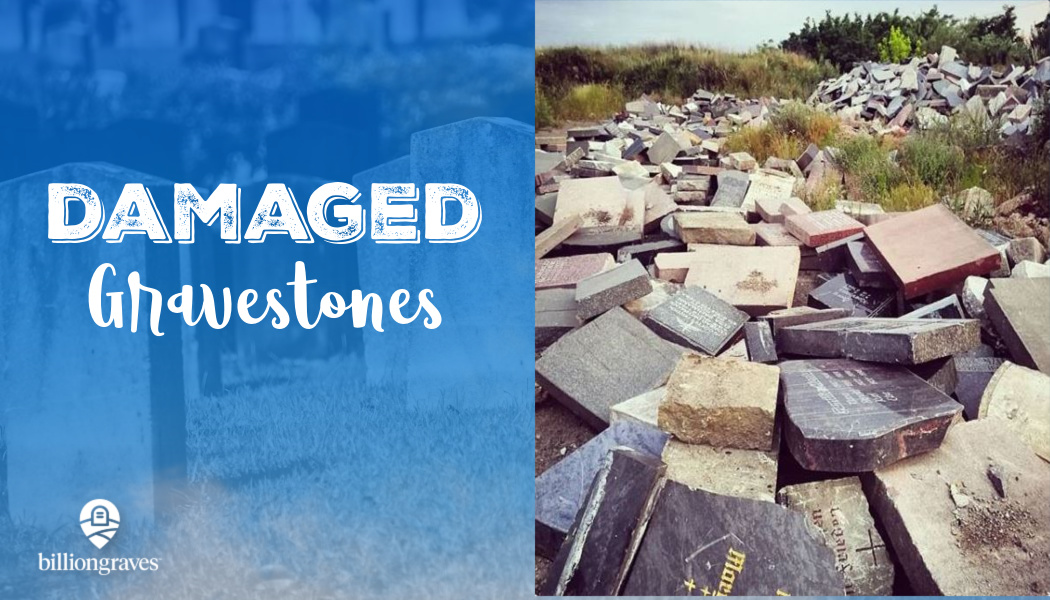Damaged gravestones mean lost history. In many cases, the damaged gravestones contain not only personal family history but also community and cultural information.
Some gravestones are damaged by natural causes. Others are damaged by either well-meaning or ill-intentioned humans. But if damaged gravestones are photographed with the BillionGraves app, some of that history can still be preserved.
Better yet, taking photos with the BillionGraves app before gravestones are damaged will build a hedge against future loss. Then both you and your loved ones can truly rest in peace!
Damaged Gravestones: Cracking
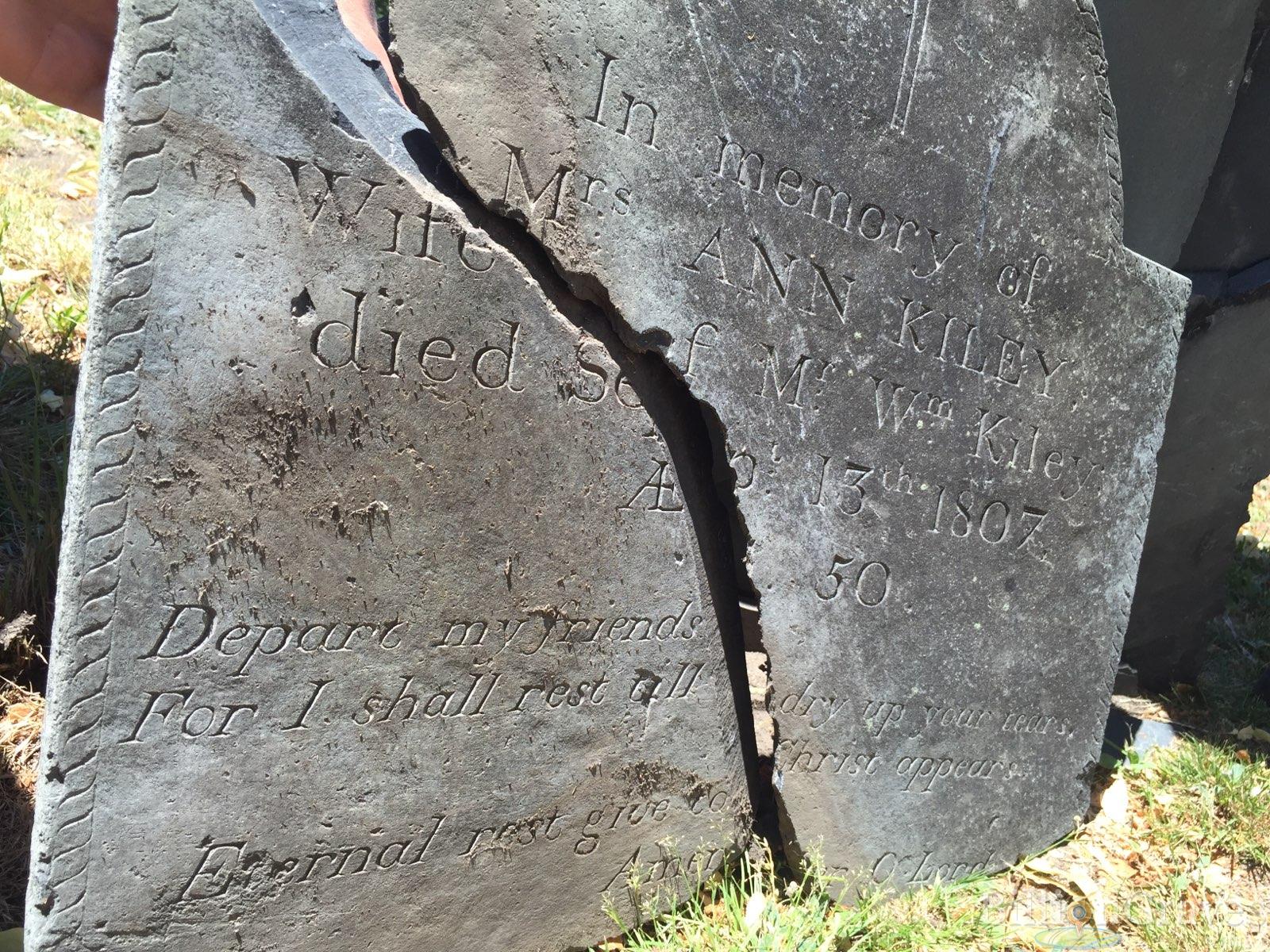
Headstones can shift due to the natural movement of the soil causing them to crack or break. Large cracks and breaks can obscure inscriptions and engraved markings.
One way to try to prevent shifting is to have the gravestone set on a base, even if it is not required by the cemetery.
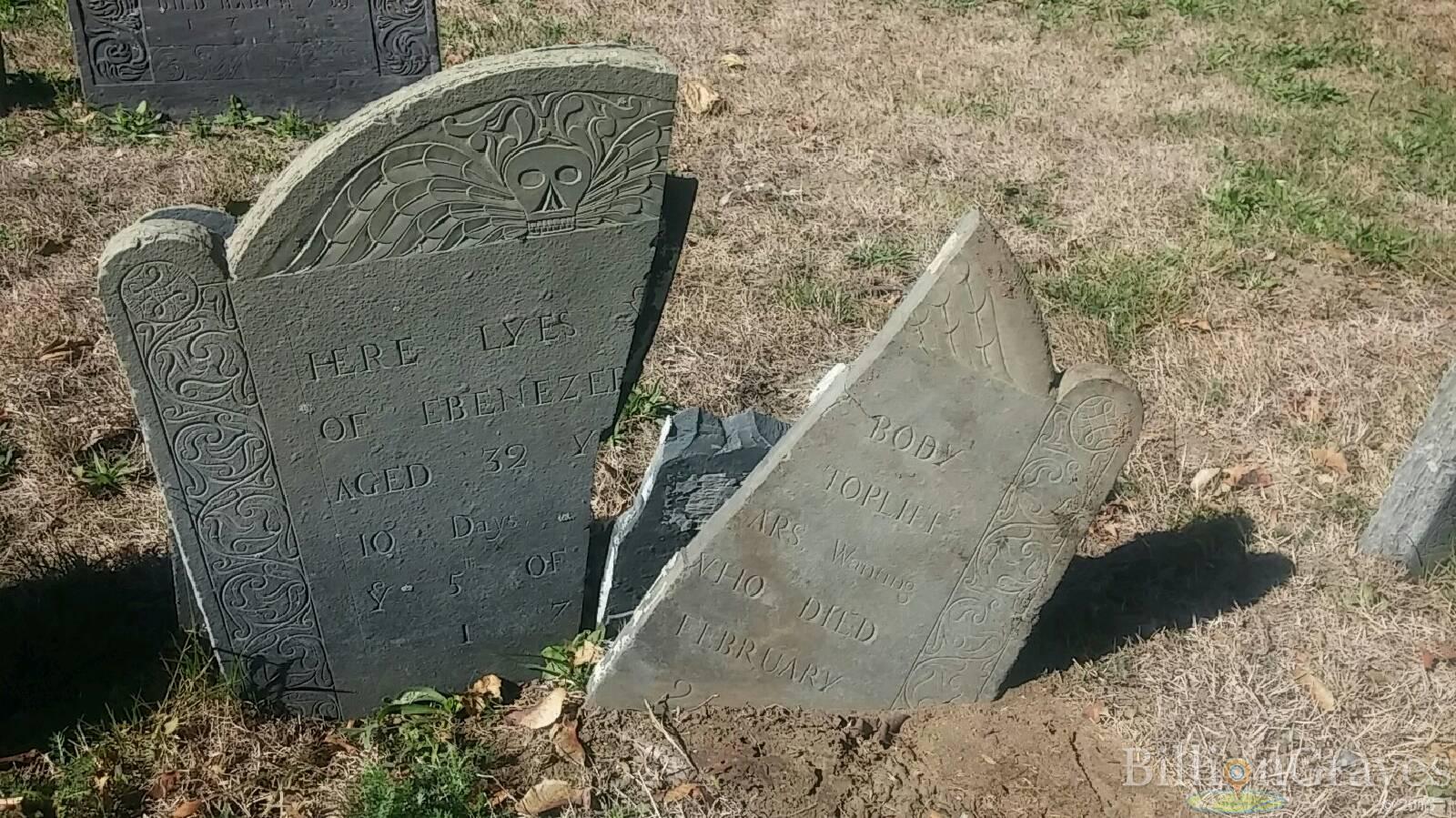
Gravestones are continually weathering due to rain, snow, ice, and wind. These elements can cause cracks over time.
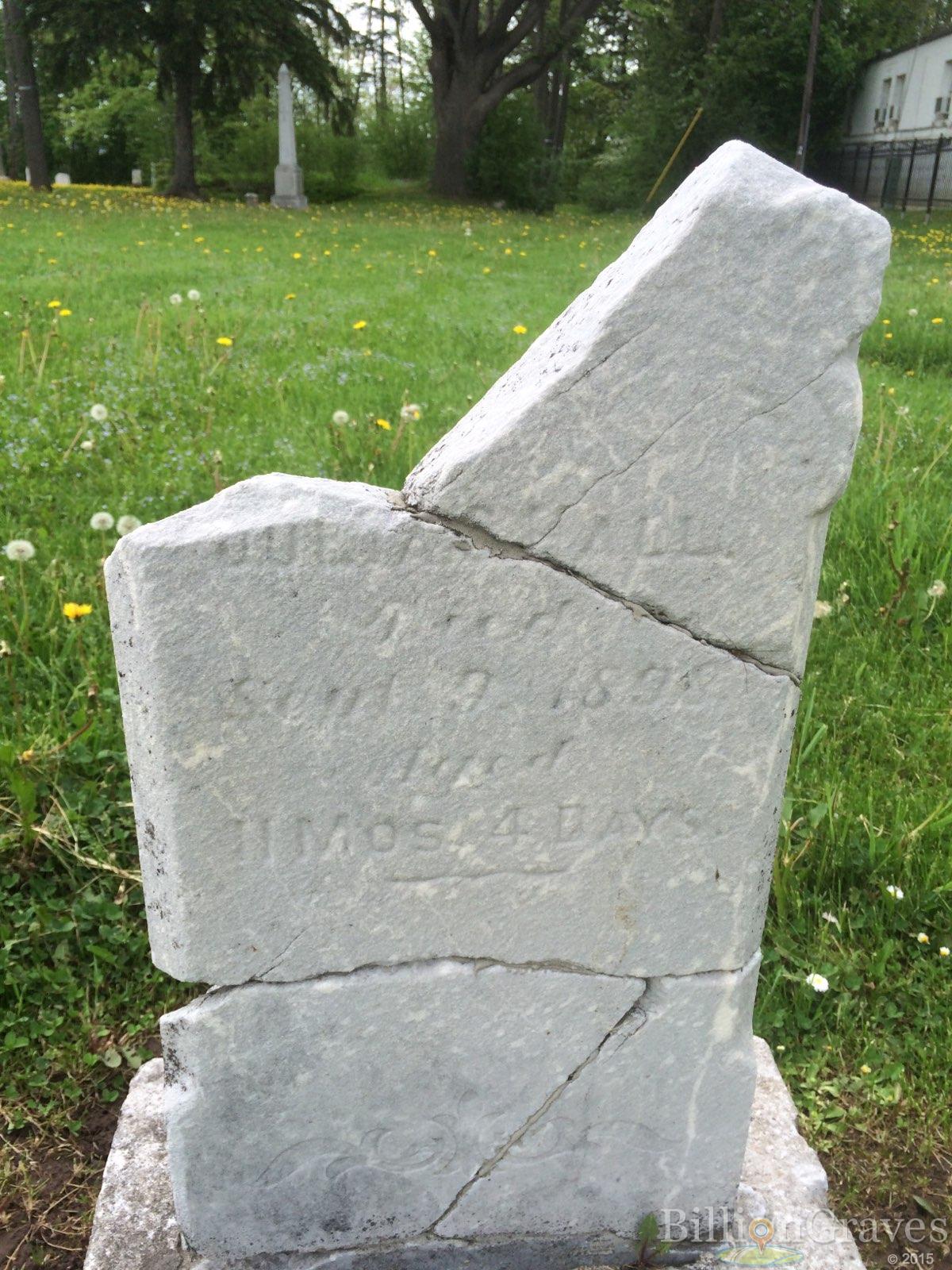
Even tiny cracks that fill with water, then freeze and thaw repeatedly, can cause the stone to break.
BillionGraves App Tip: If you are photographing a gravestone that is partially unreadable due to cracking, look for family members on nearby gravestones and then link the data together. This will give the transcribers a chance to see the last name on another headstone and compare it to the damaged gravestone.
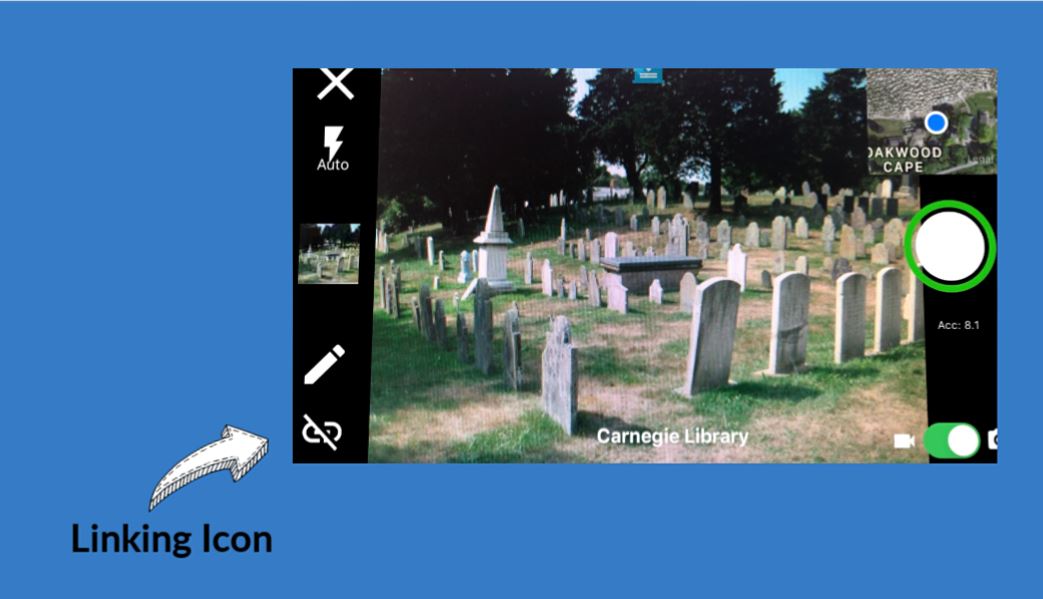
Here’s how to link gravestone photos with the BillionGraves App:
Just click on the chain icon in the corner of your screen between each photo that you would like to link.
You can use this linking feature for headstones that have information on both sides or for obelisks that have data on four sides. You can also use it to link a large gravestone with a family surname on it to nearby smaller gravestones with the family member’s first names on them.
For additional app tips, check out the blog post, Insider Secrets from BillionGraves Super-Fans, by clicking HERE.
Damaged Gravestones: Grass Overgrowth
As you walk through an older cemetery and see plots that look like they are reserved for future new gravesites, you may actually be looking at plots that have already been taken. It just may be that grass and weeds have completely overgrown the grave markers.
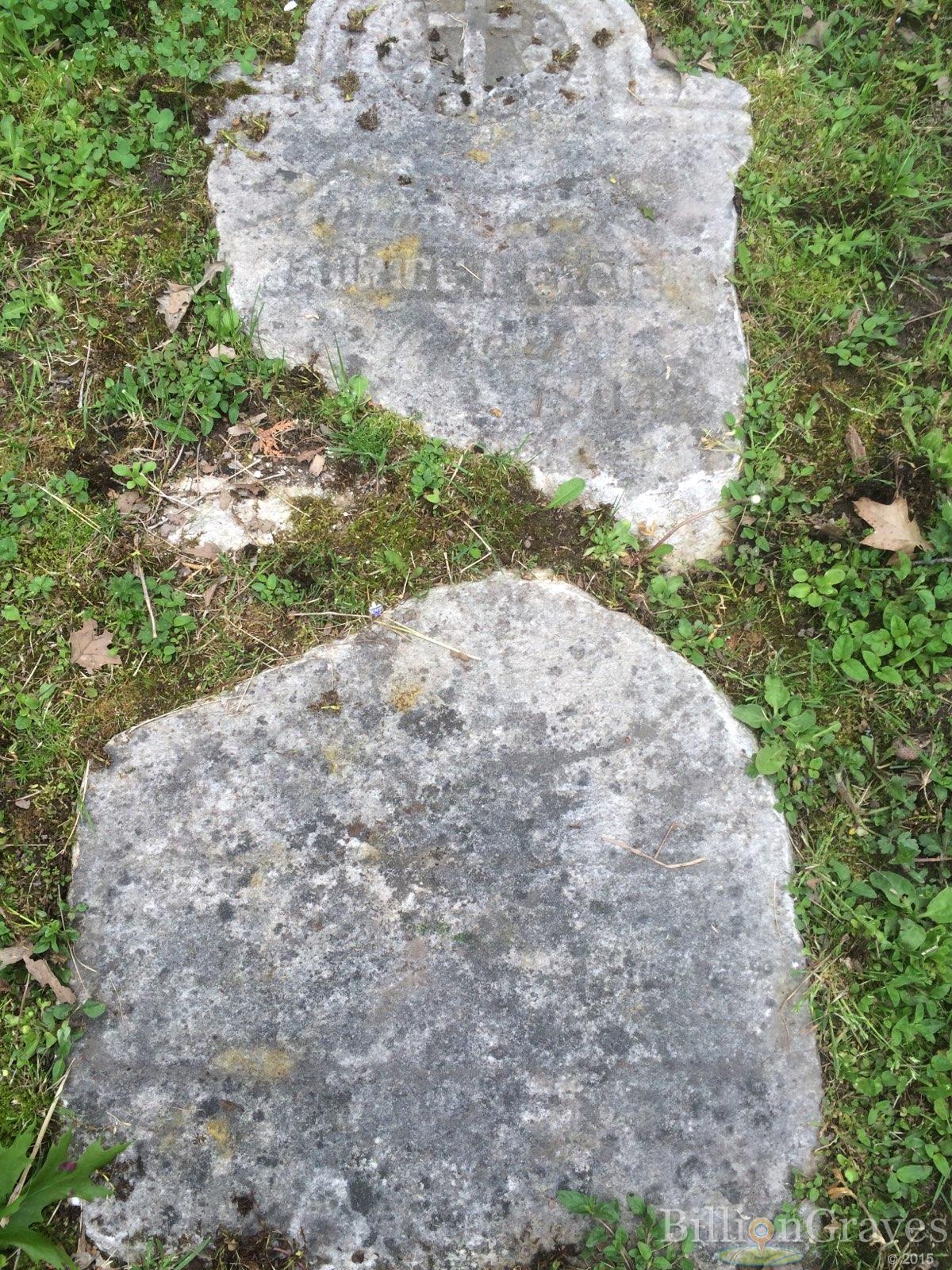
It’s hard to believe that a tiny blade of grass can work its way through solid stone, but we’ve all seen it in sidewalks and driveways. Plants are stronger than rocks!
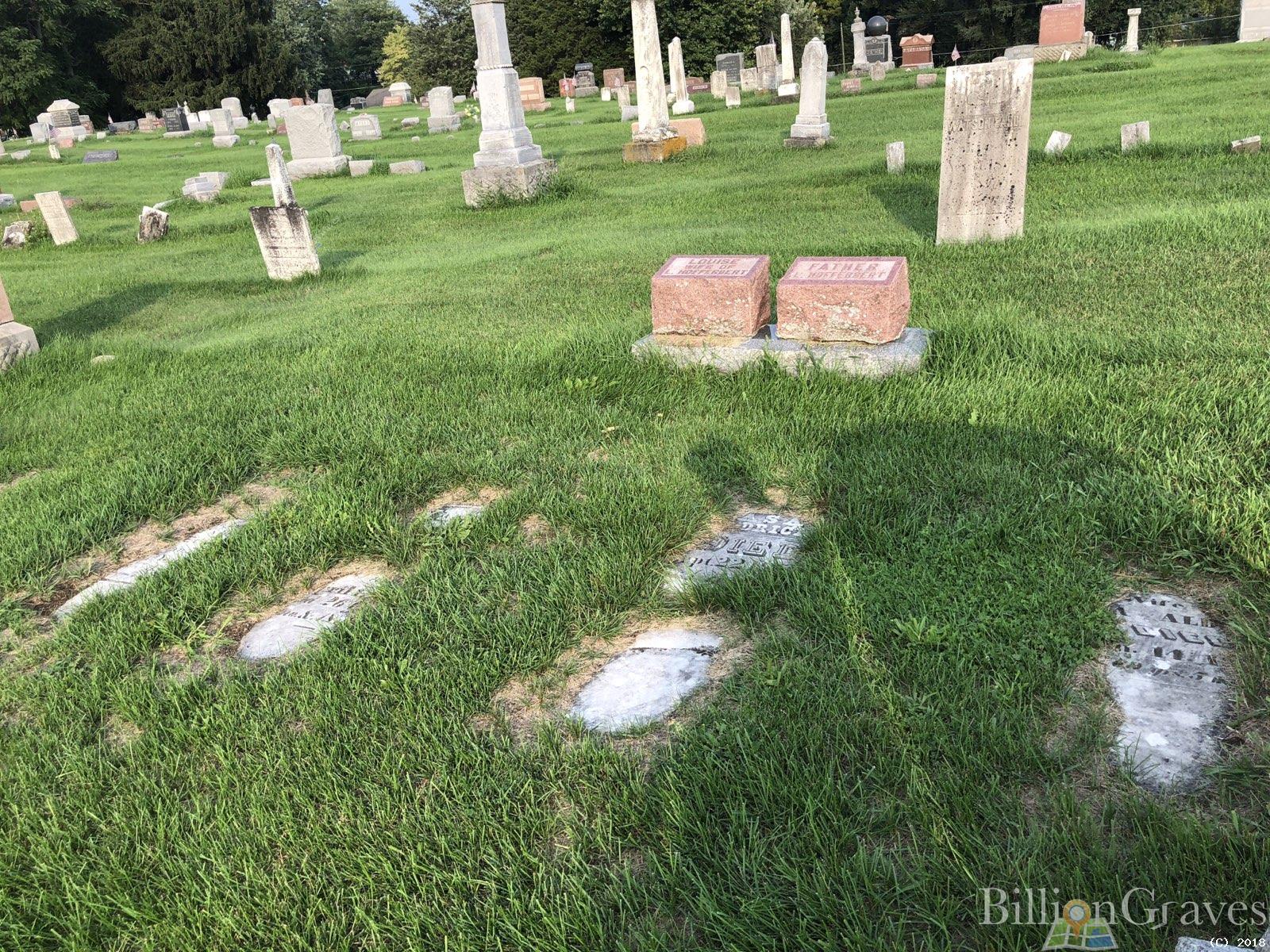
At this Indiana cemetery, upright gravestones are visible but flat grave markers are rapidly disappearing due to overgrowth.
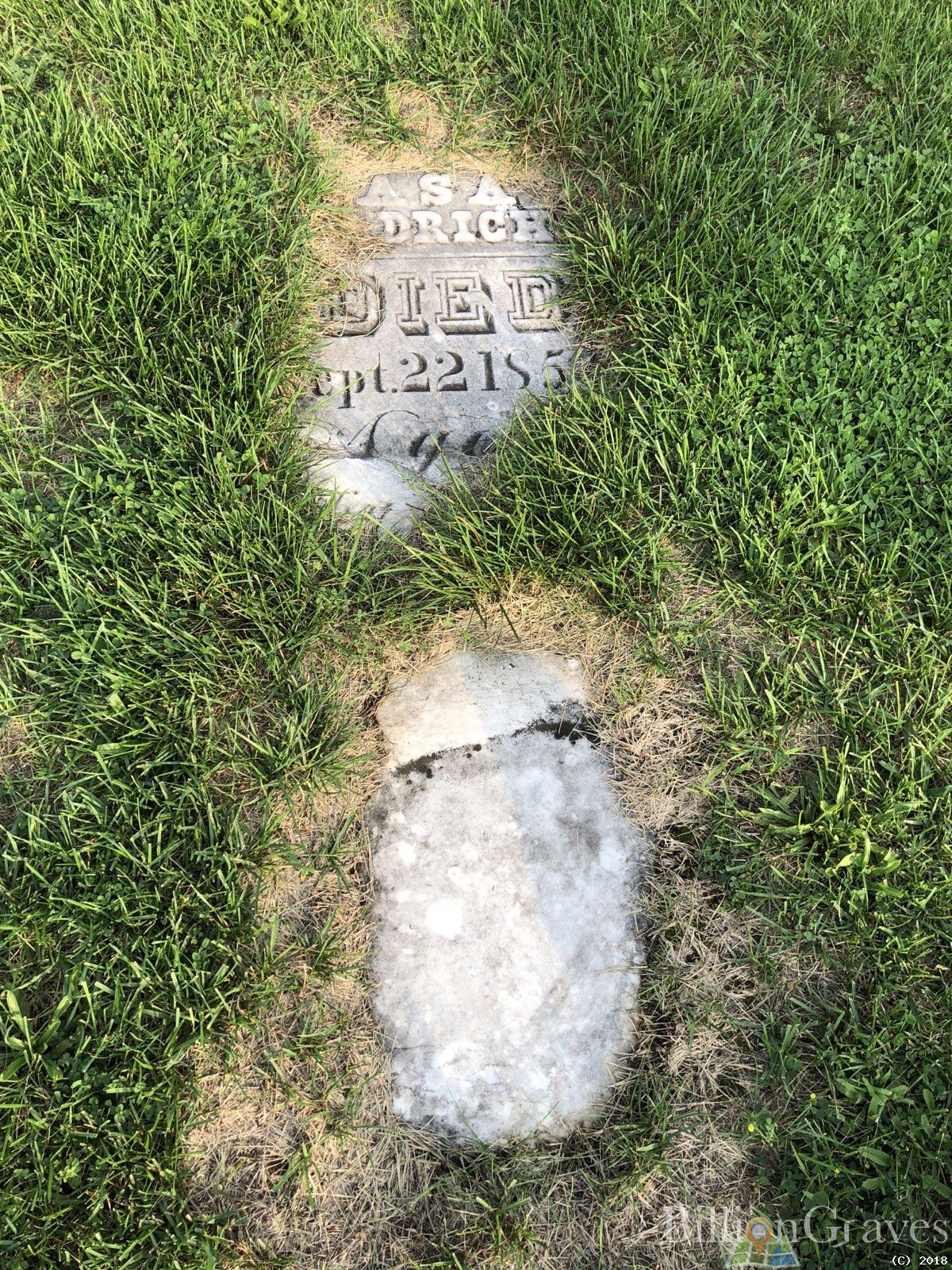
You can gently remove grass that is encroaching on gravestones with a plastic paint scraper or trowel. Avoid using metal tools or anything that might damage the gravestone.
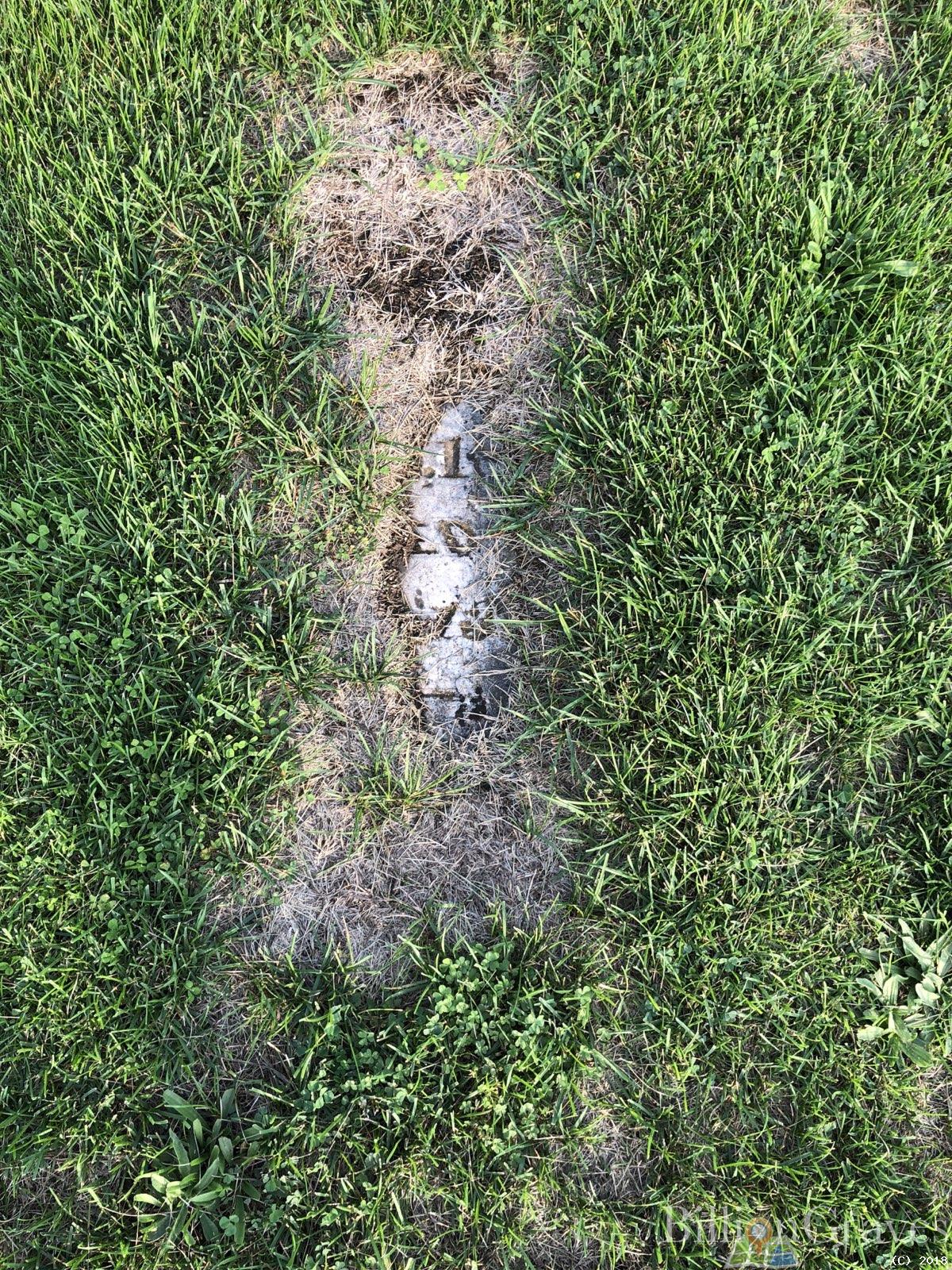
Any time you try to remove biological overgrowth from a gravestone you risk damaging the stone. On the other hand, doing nothing will result in gravestones like these disappearing altogether in just a few years.
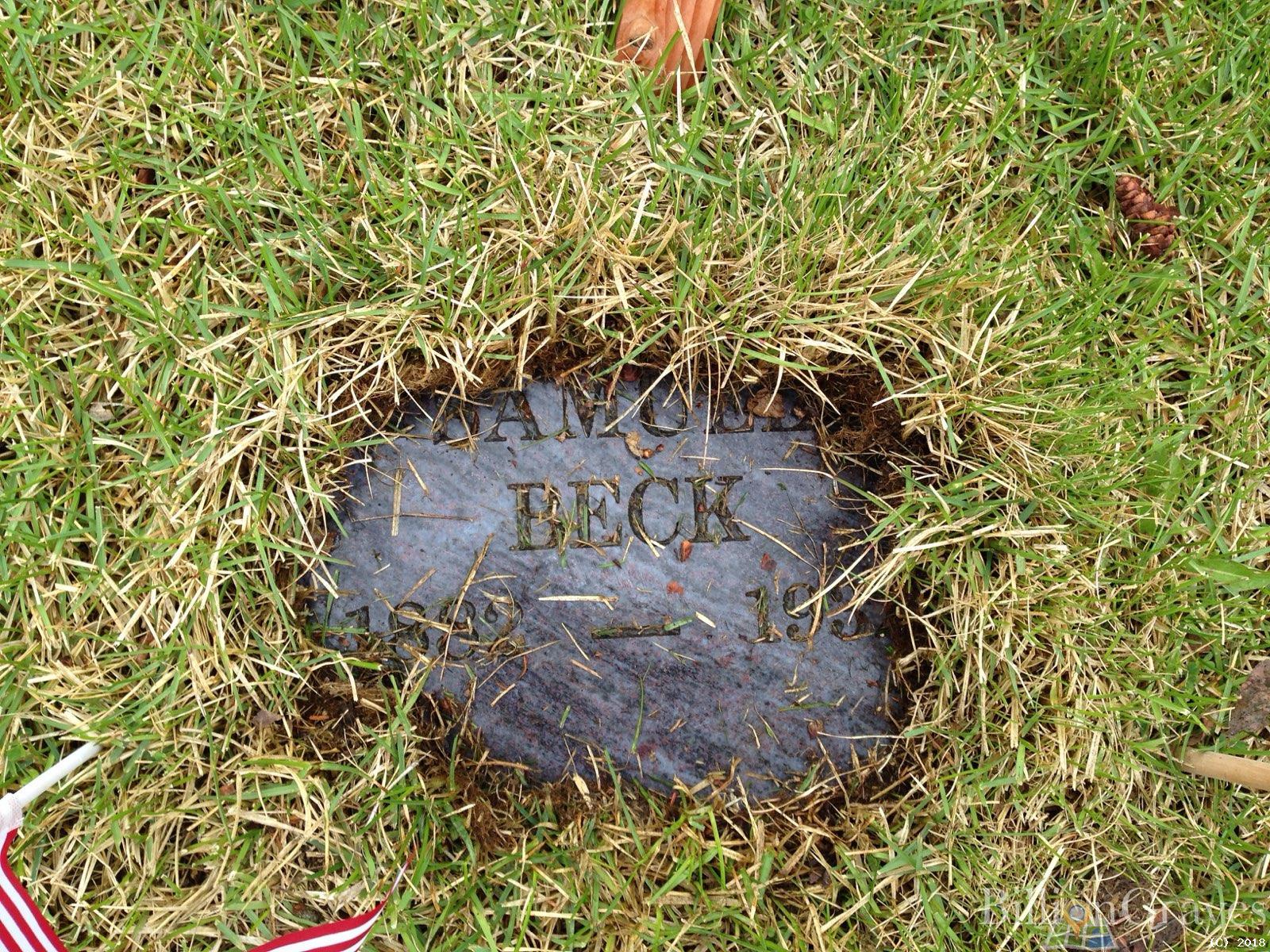
BillionGraves App Tip: If you can just barely pull back the grass far enough to see the names and dates, but not far enough to take a decent photo, you can use the transcribing icon to record the data right at the cemetery. Here’s how:
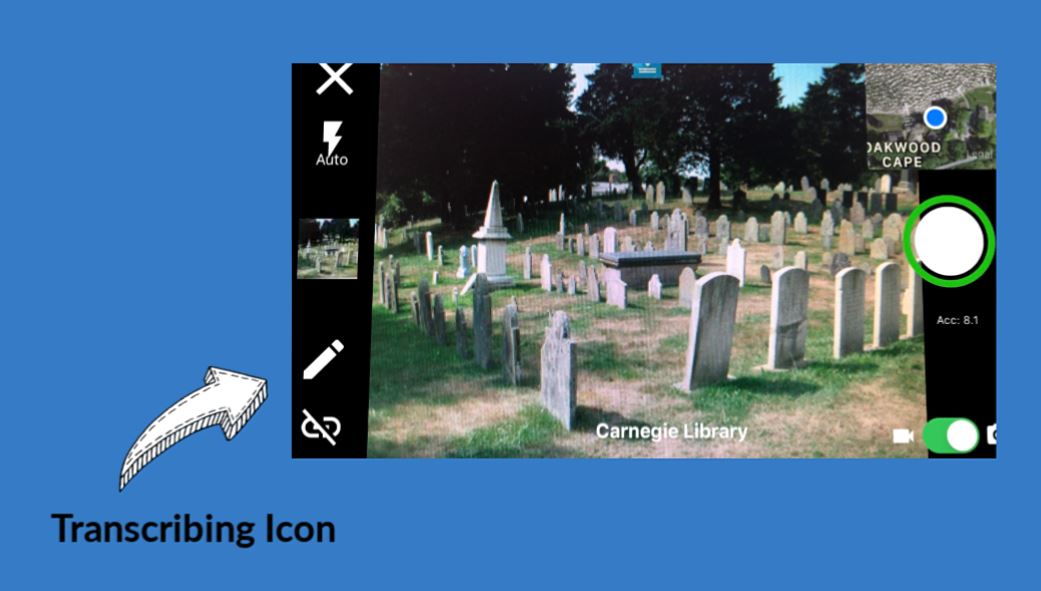
See that little pencil icon in the photo above? MOST of the time, you do not need to touch it! But there are some cases where it can be incredibly useful!
If you are sure that transcribers will not be able to read the names and dates from a photo, tap on the pencil icon. This will open a screen where the names and dates can be entered using the keyboard on your phone.
There is also an option for you to enter the information by recording your own voice as you read the inscription. This is done by tapping on the button at the bottom left side of the screen that says, “magic.”
Pretty slick, huh? But, please remember that this magic is ONLY to be used when the data on the damaged gravestone is so worn or obscured that you think a transcriber will not be able to read it from a photo.
For more BillionGraves app tips like this one, click HERE.
Damaged Gravestones: Ivy and Other Plants
If you’ve ever seen a dandelion or a blade of grass poking up through a cement driveway or causing a sidewalk to heave then you understand the power of tiny plant roots.
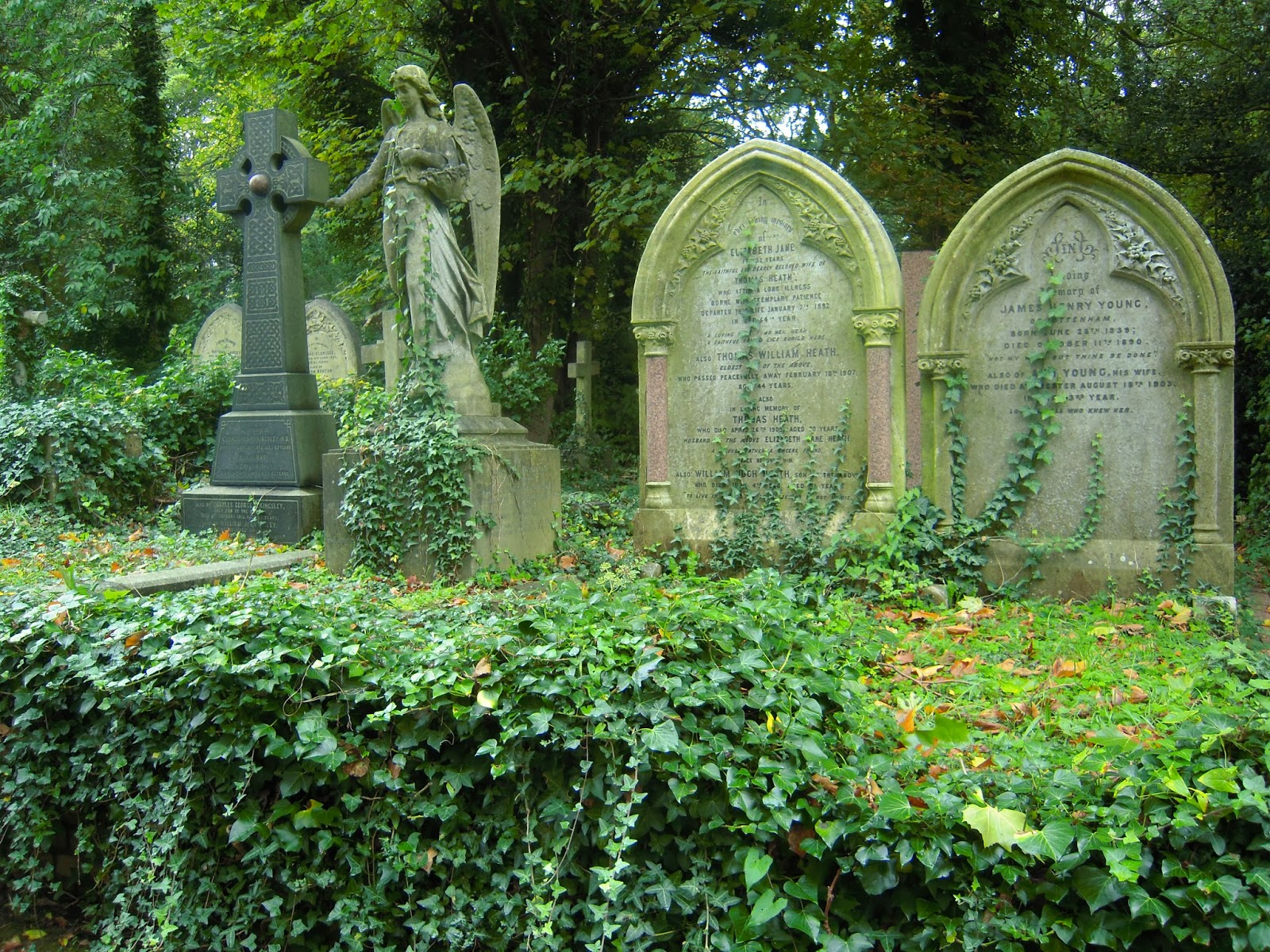
During the Victorian era, it was very popular to plant ivy at cemeteries, particularly in rural park-like cemeteries. It truly is beautiful. And it is symbolic.
Ivy, with is clingy tendrils, symbolizes a person who was clinging to life. This was particularly meaningful for family members of the deceased who had fought a long battle with illness before departing this life.
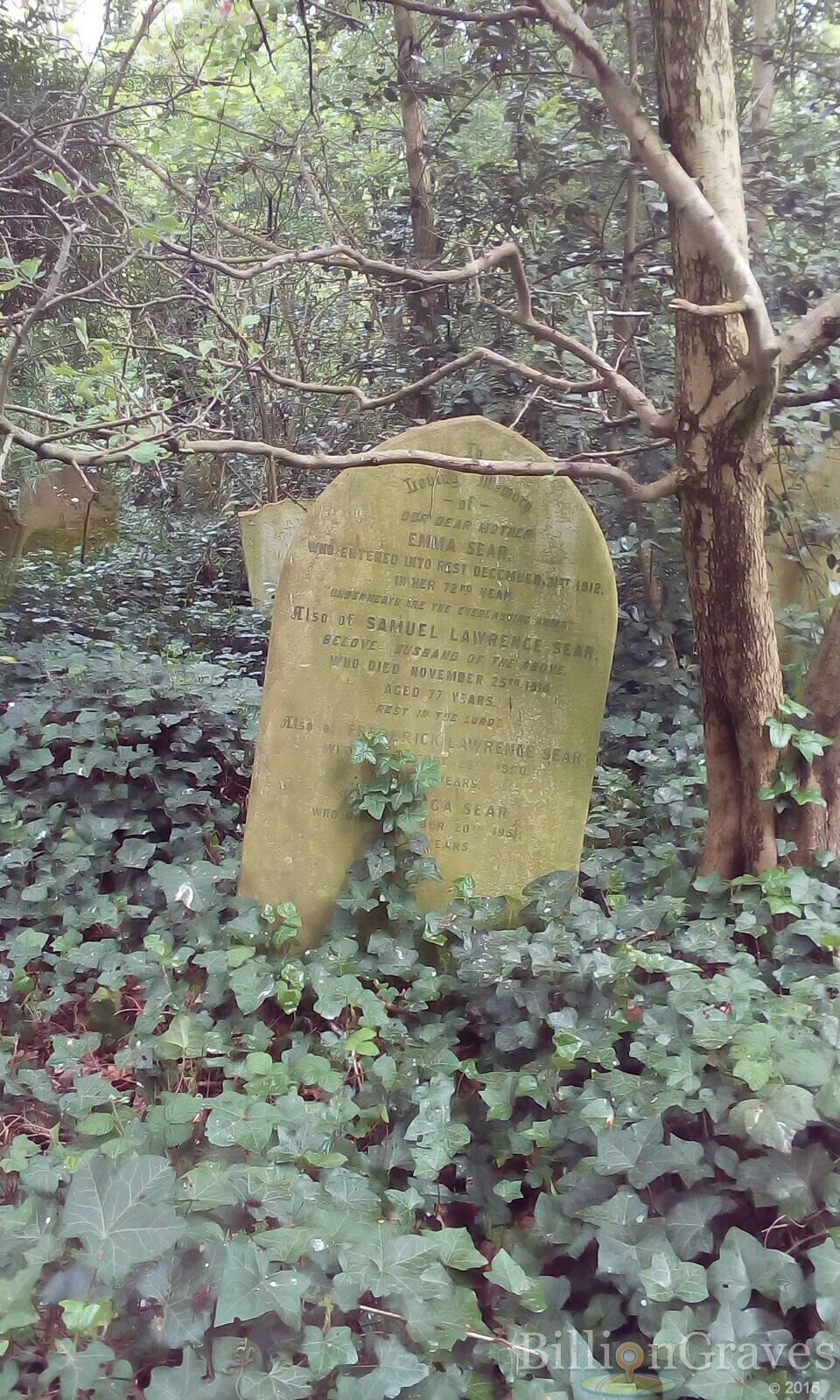
But beauty, nostalgia, and symbolism aside, ivy damages gravestones! If left unchecked, biological growth can cause headstones to crack, crumble, and split over time.
A team from English Heritage and Oxford University conducted a study about how to safely remove ivy from gravestones at St. Mary’s Churchyard in Ramsey, Cambridgeshire, England. You can read it HERE.
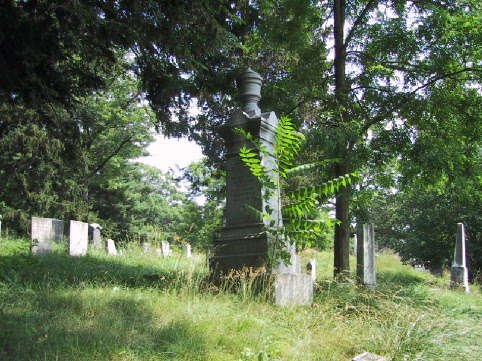
Plants, like grass, ivy, moss, and ferns that grow on or under gravestones can be damaging because their roots penetrate the stone and cause splitting. And like algae, fungi, and lichen, they also trap moisture.
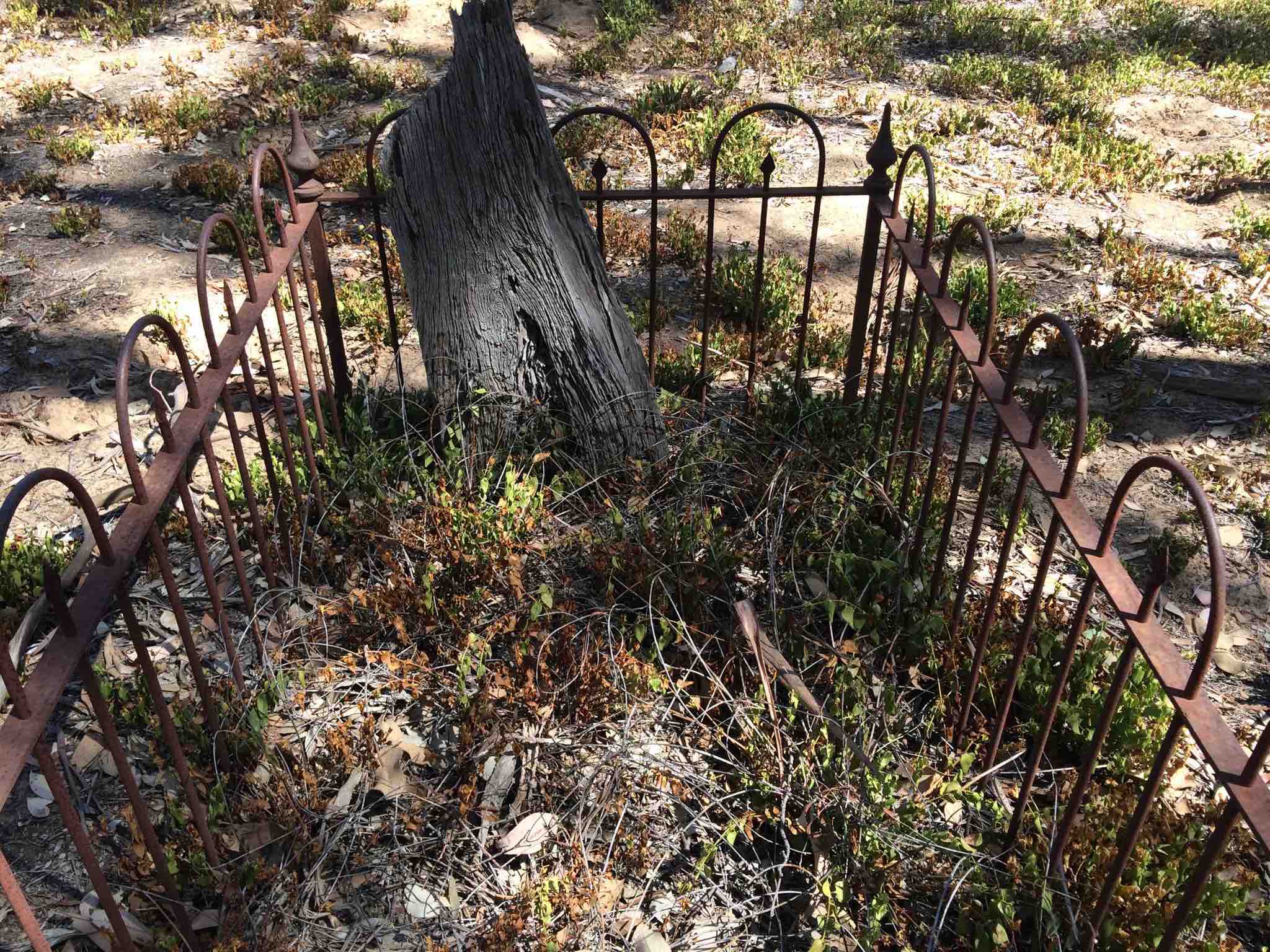
Sadly, sometimes plant-life takes over and it’s just too late.
Damaged Gravestones: Dirt-Covered
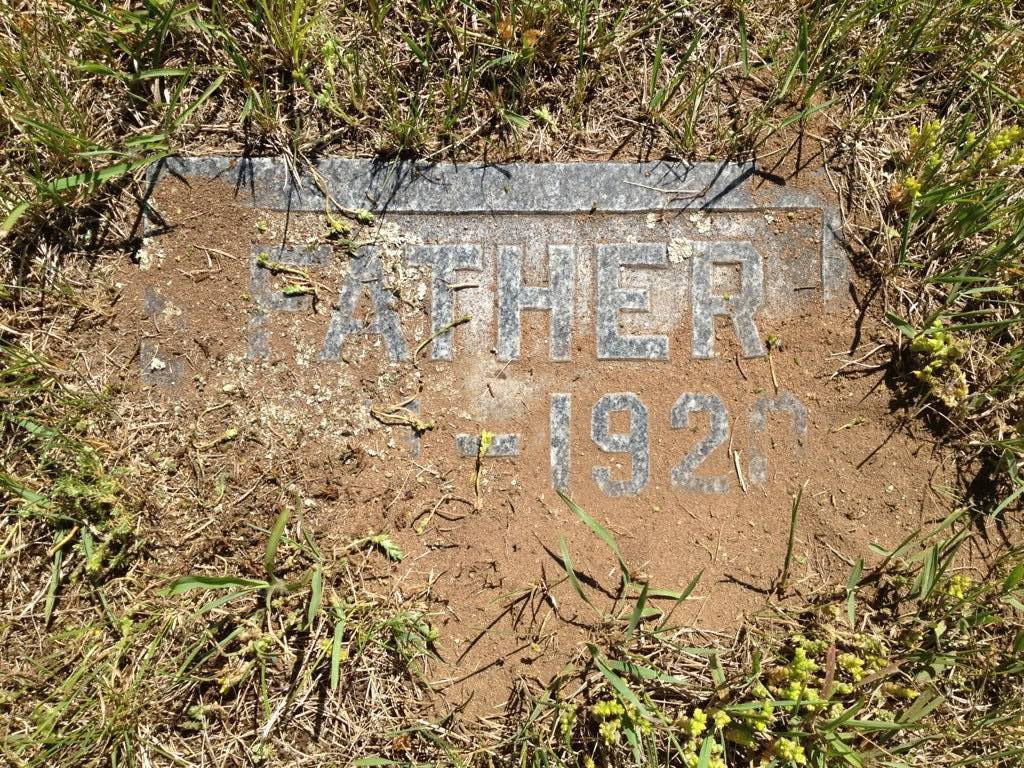
Flat grave markers are particularly susceptible to damage from dirt, soil, and mud. Dirt that penetrates into the pores of the stone can cause a dingy appearance. It can also lead to staining. For example, minerals in the soil, such as iron, can leach into the headstone and cause rust-colored stains.
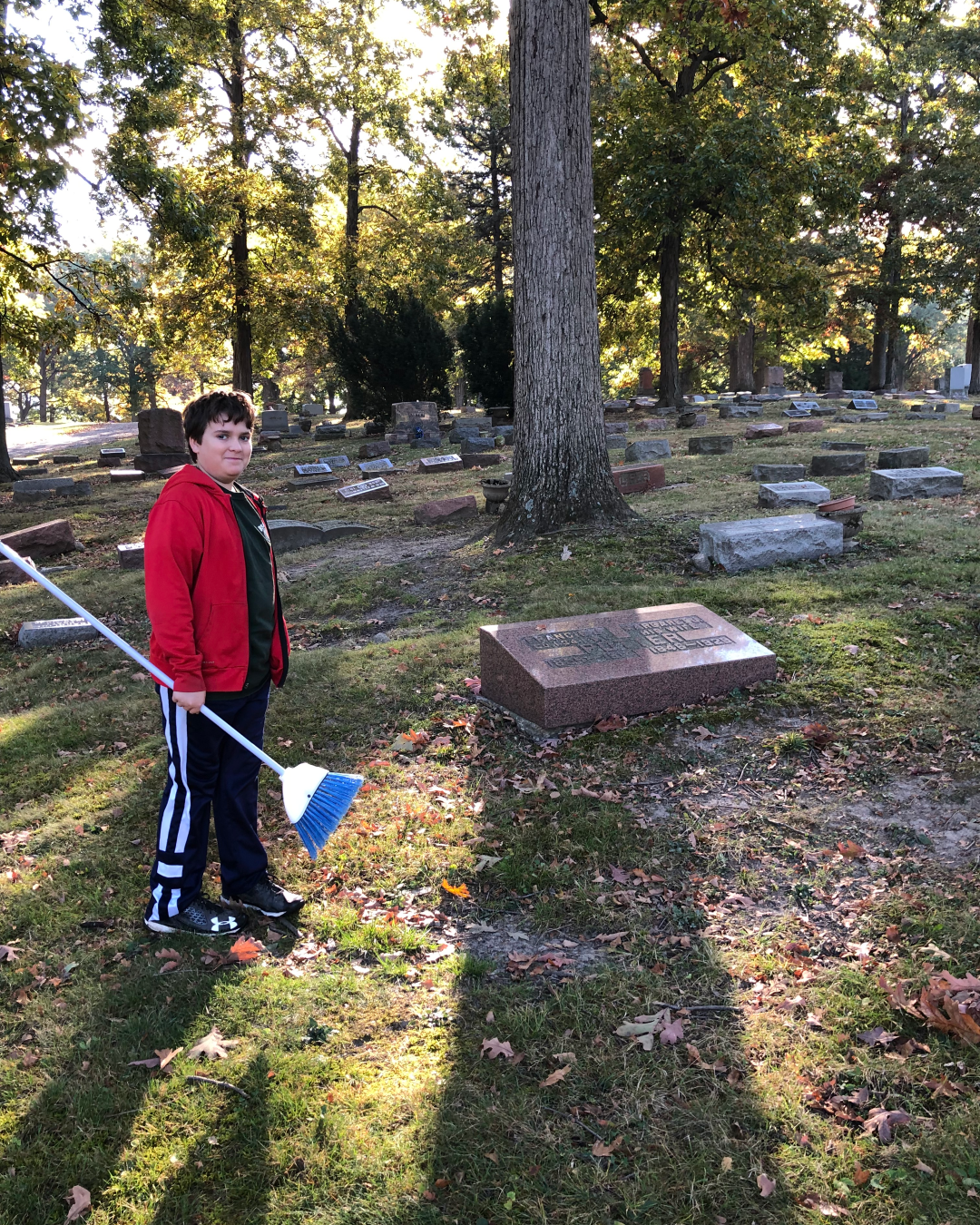
BillionGraves App Tips:
- A soft, clean brush or broom can help remove dirt that is covering gravestones due to wind and erosion.
- A spray bottle with water in it can help to make dirty gravestones easier to read.
- A toothbrush can be helpful for removing dirt from fine engravings.
Damaged Gravestones: Algae, Moss, and Lichen
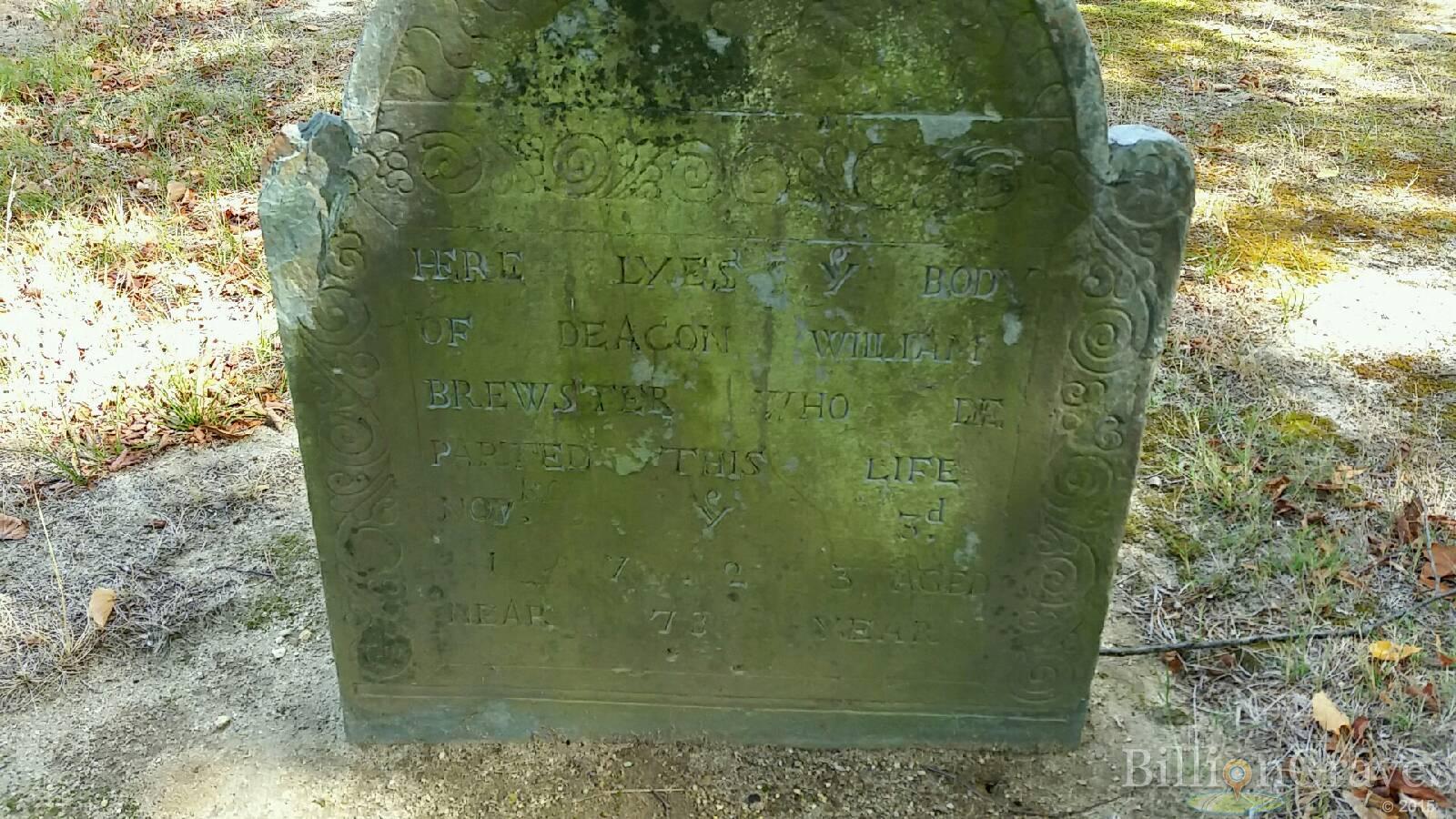
Algae, fungi, and lichen may be green, gray, black, red, orange, yellow, blue, or brown. These organisms can damage headstones by trapping moisture on the stone and beneath the surface of the stone.
Then as temperatures change, the moisture freezes and thaws. The resulting thermal expansion and contraction damage the stone.
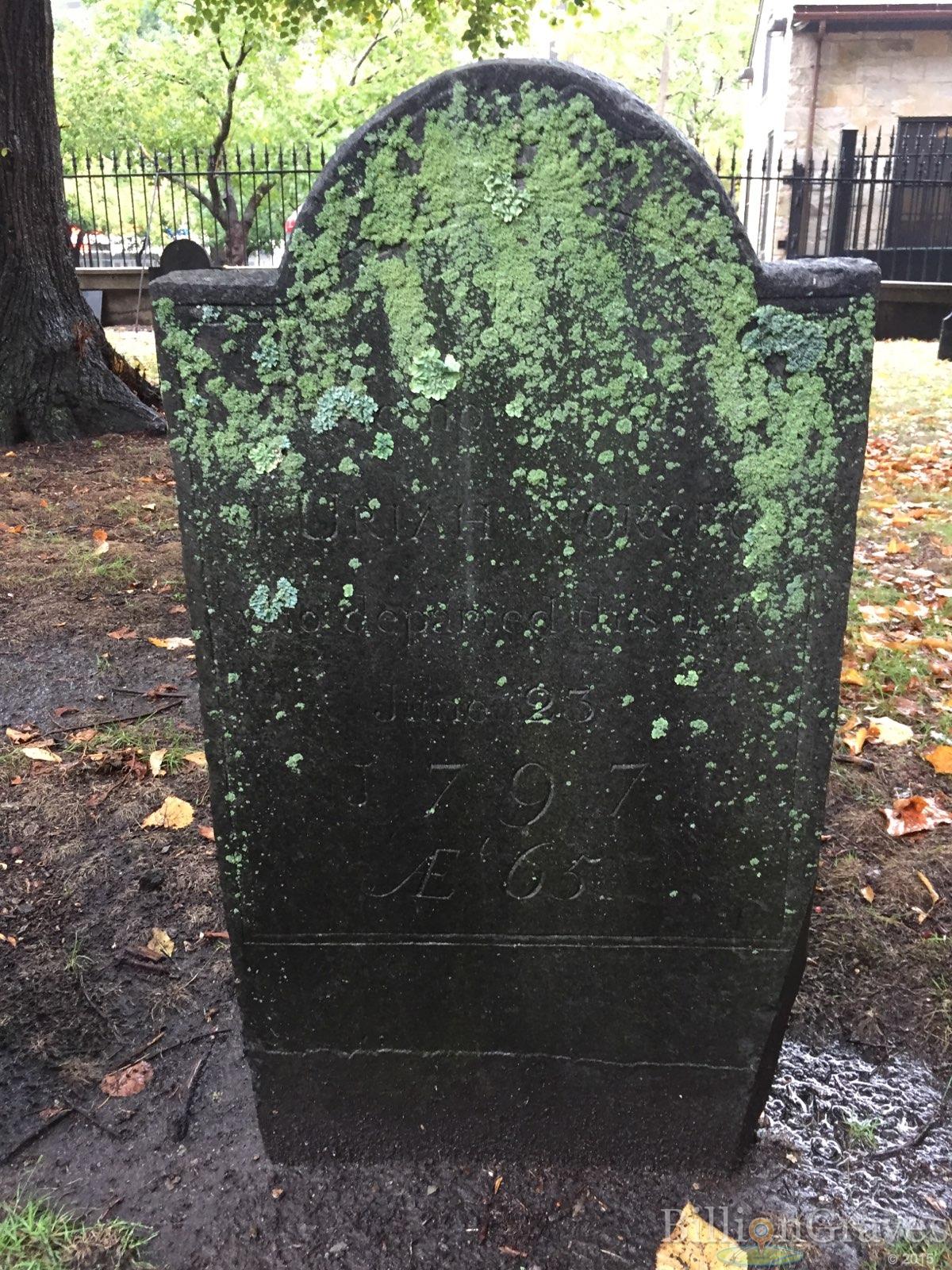
The trapped moisture also continues to foster the growth of additional algae, fungi, and lichen, which extend into the pores of the stone.
The “roots” or hyphae of these living organisms swell and shrink causing additional cracking, peeling, and flaking to occur.
With each passing year, the gravestone becomes more difficult to read.
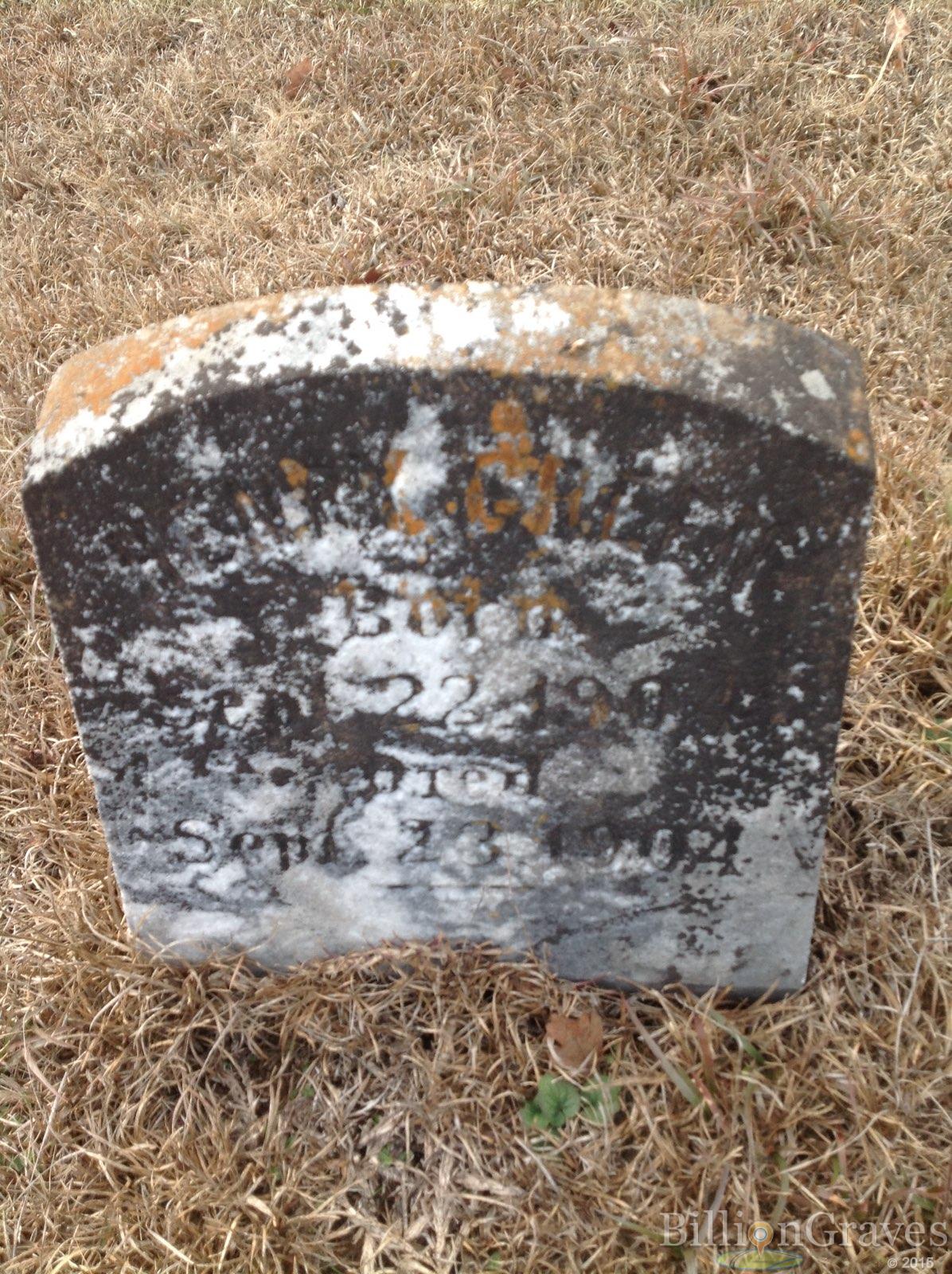
Can you read the names and dates on the gravestone above? Some of it, right? But maybe not all.
Some of the letters in the name are caked with lichen, making them hard to read. The birth date is September 22, 190-? Hmm, 190what? The death date is September 22, 1904.
So did this child live only one day? Or one year and a day? Or longer? It’s hard to tell.
BillionGraves App Tips:
If you were at the cemetery you may be able to feel the letters and numbers with your fingers. If you can, this would be another good situation to use the pencil icon mentioned above to transcribe the data while you are at the cemetery.
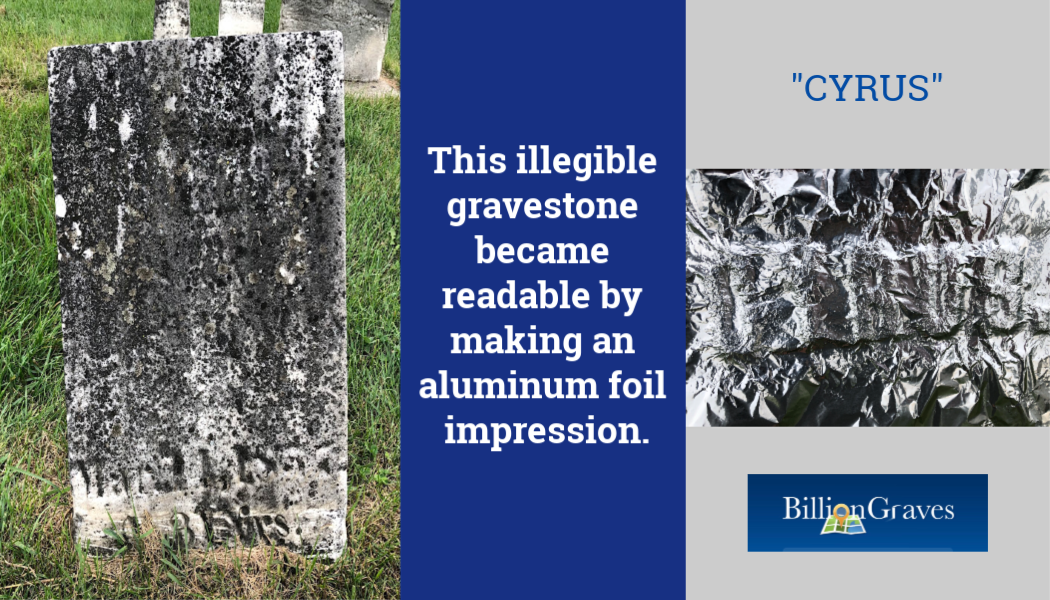
Or you could press a sheet aluminum foil over the lettering to create a “mask” that is easier to read. Learn more about how to do this by clicking HERE for BillionGraves blog post: 15 Item Grab-N-Go Cemetery Bag.
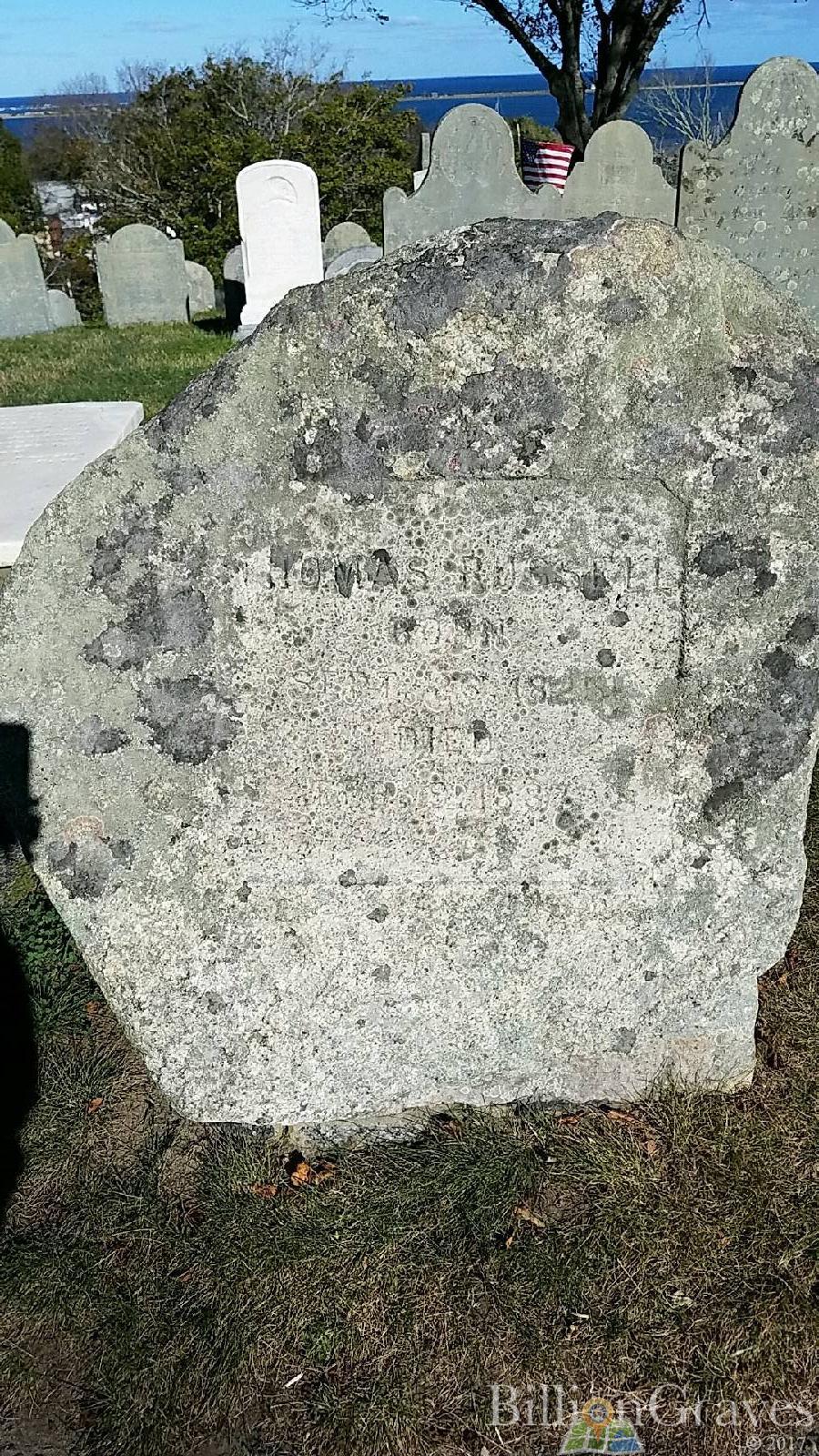
A very soft toothbrush can be helpful to remove lichen from gravestone lettering. Be very careful not to damage the stone though if it is old or fragile. When in doubt, leave it alone.
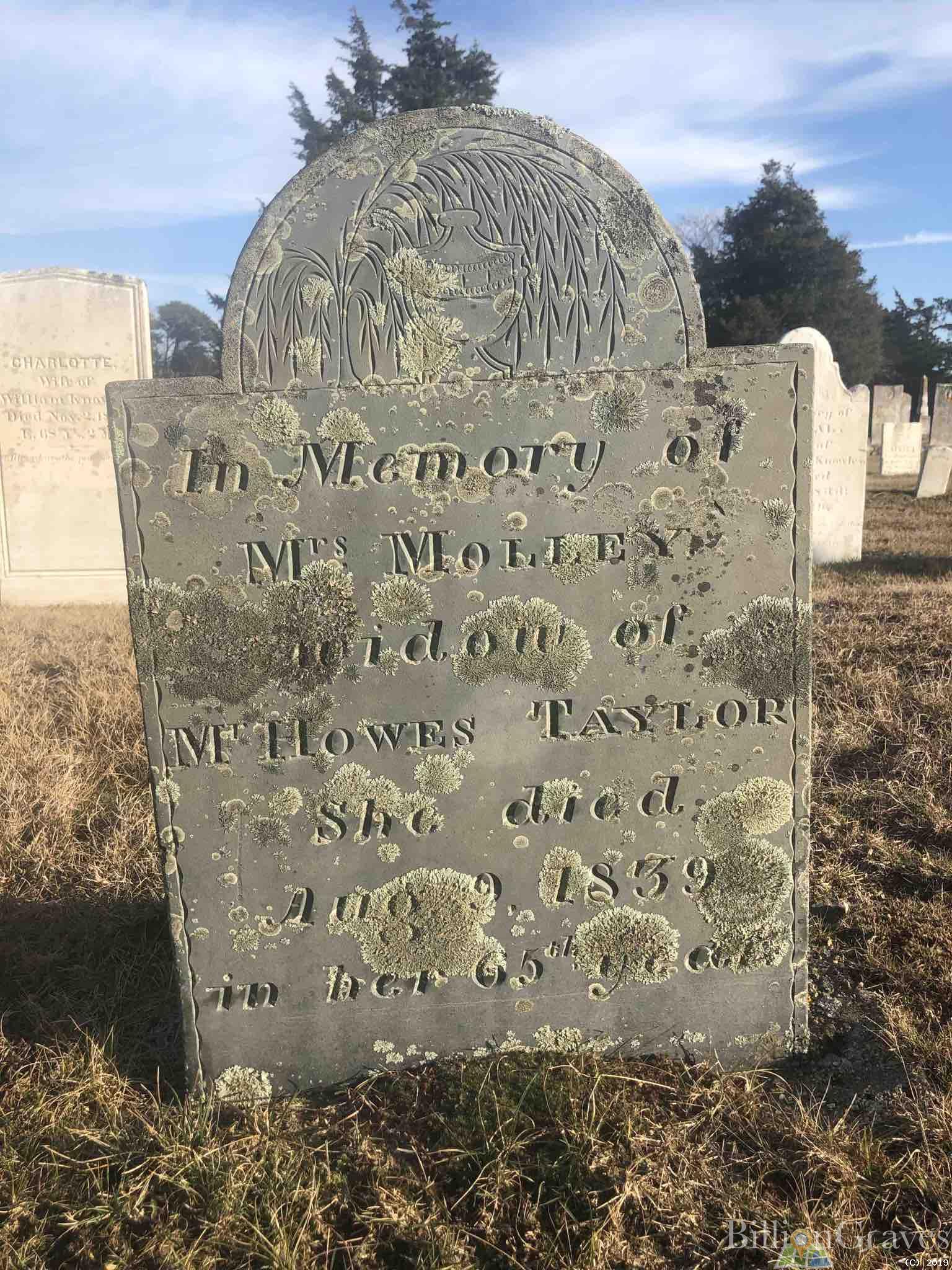
Often it is best to leave gravestones in their natural state at the cemetery. But if the gravestone is under conditions that are causing it to deteriorate, become illegible, or be destroyed it altogether the best option may be a careful and thoughtful cleaning.
Gravestone Cleaning Kit
To purchase a gravestone kit click HERE. It’s the same cleaning solution used by professionals at Arlington National Cemetery!
For tips on cleaning gravestones safely, click HERE and to read BillionGraves’ popular blog post, Gravestone Cleaning 101.
Damaged Gravestones: Darkening
Acid rain, pollution, animal droppings, and tree sap can all cause gravestones to darken.
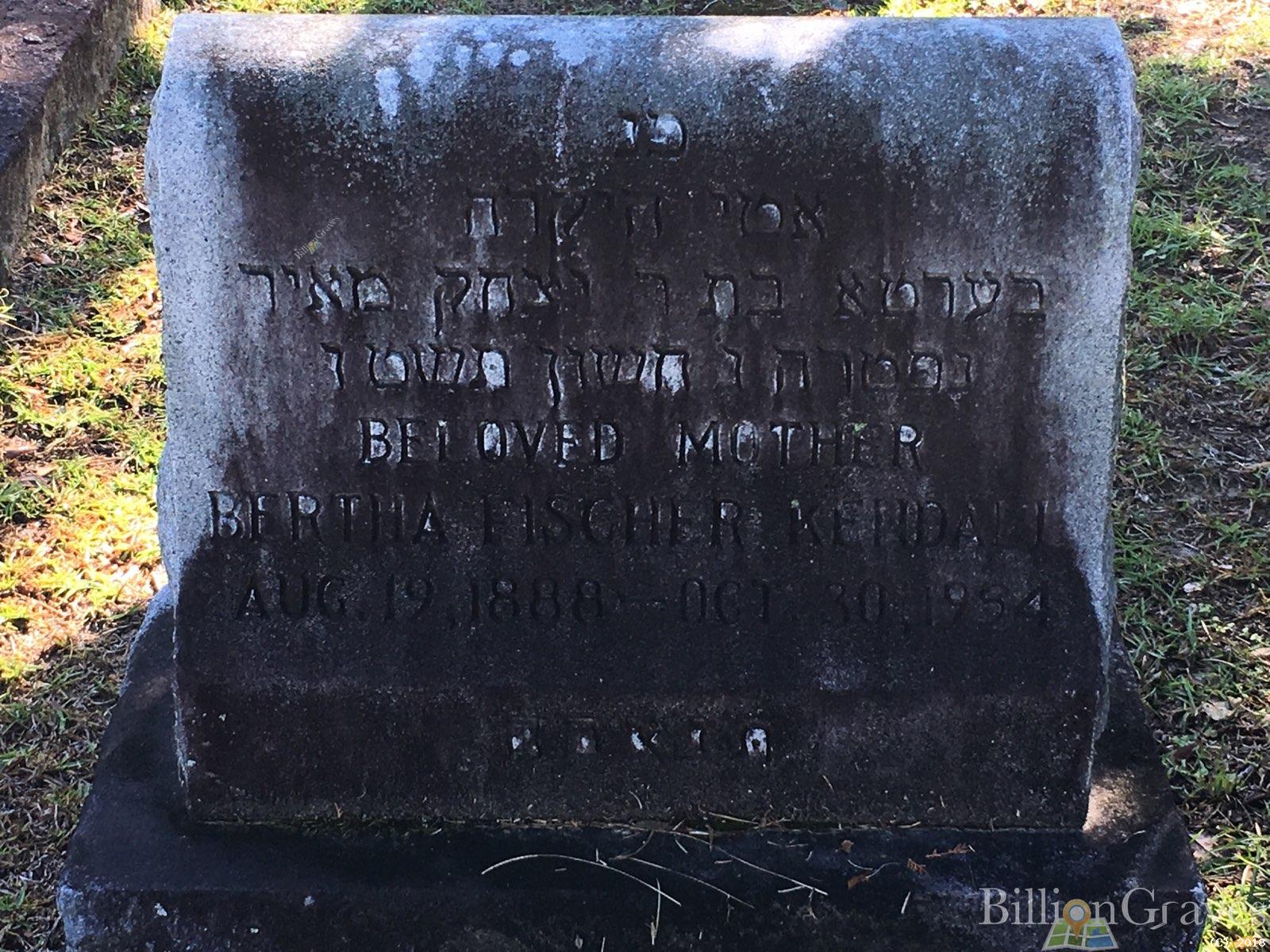
BillionGraves App Tip: Shine a flashlight across the lettering on darkened gravestones when it is difficult to read. Or angle a mirror to reflect the sunlight.
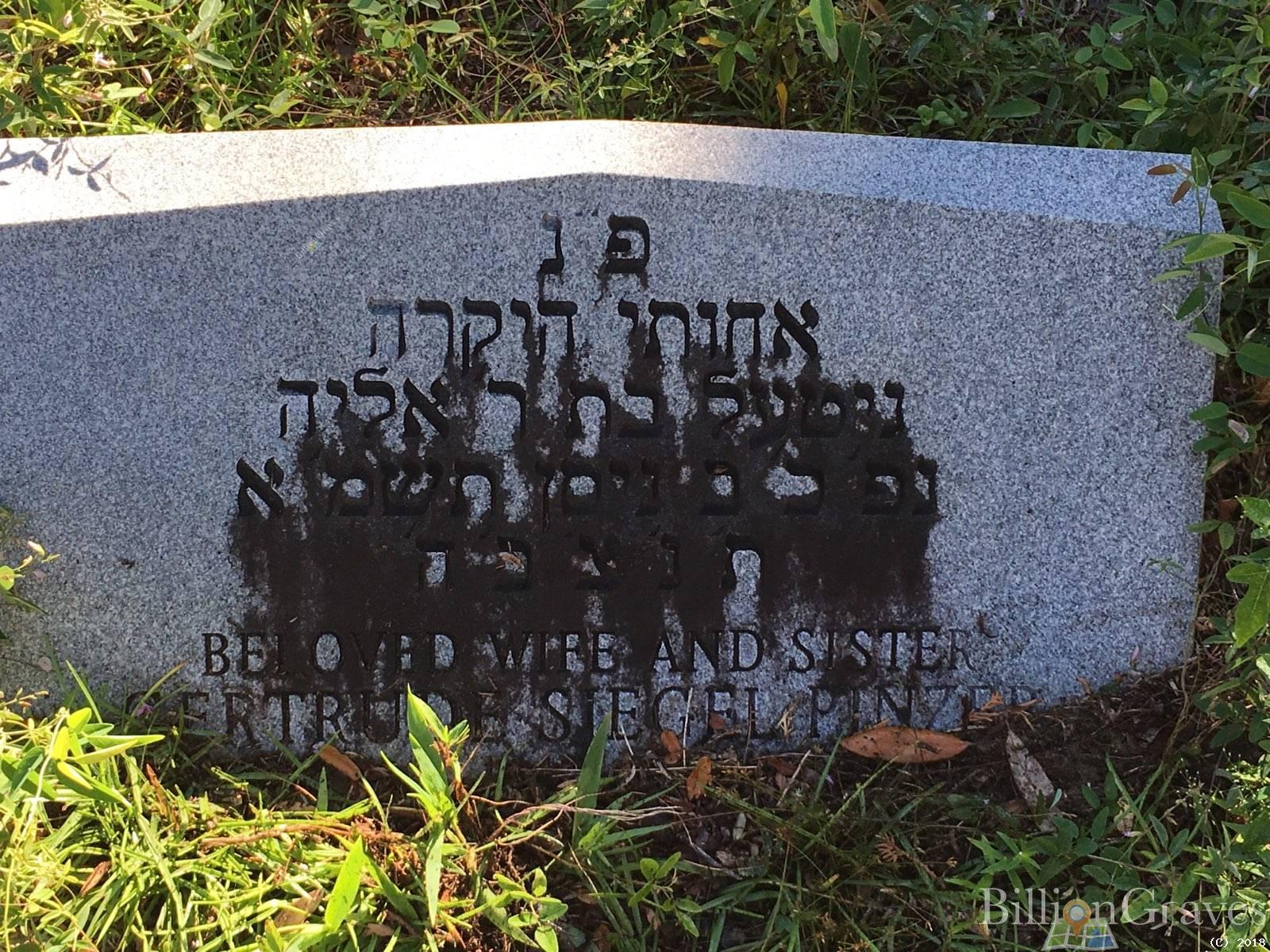
Damaged Gravestones: Mold
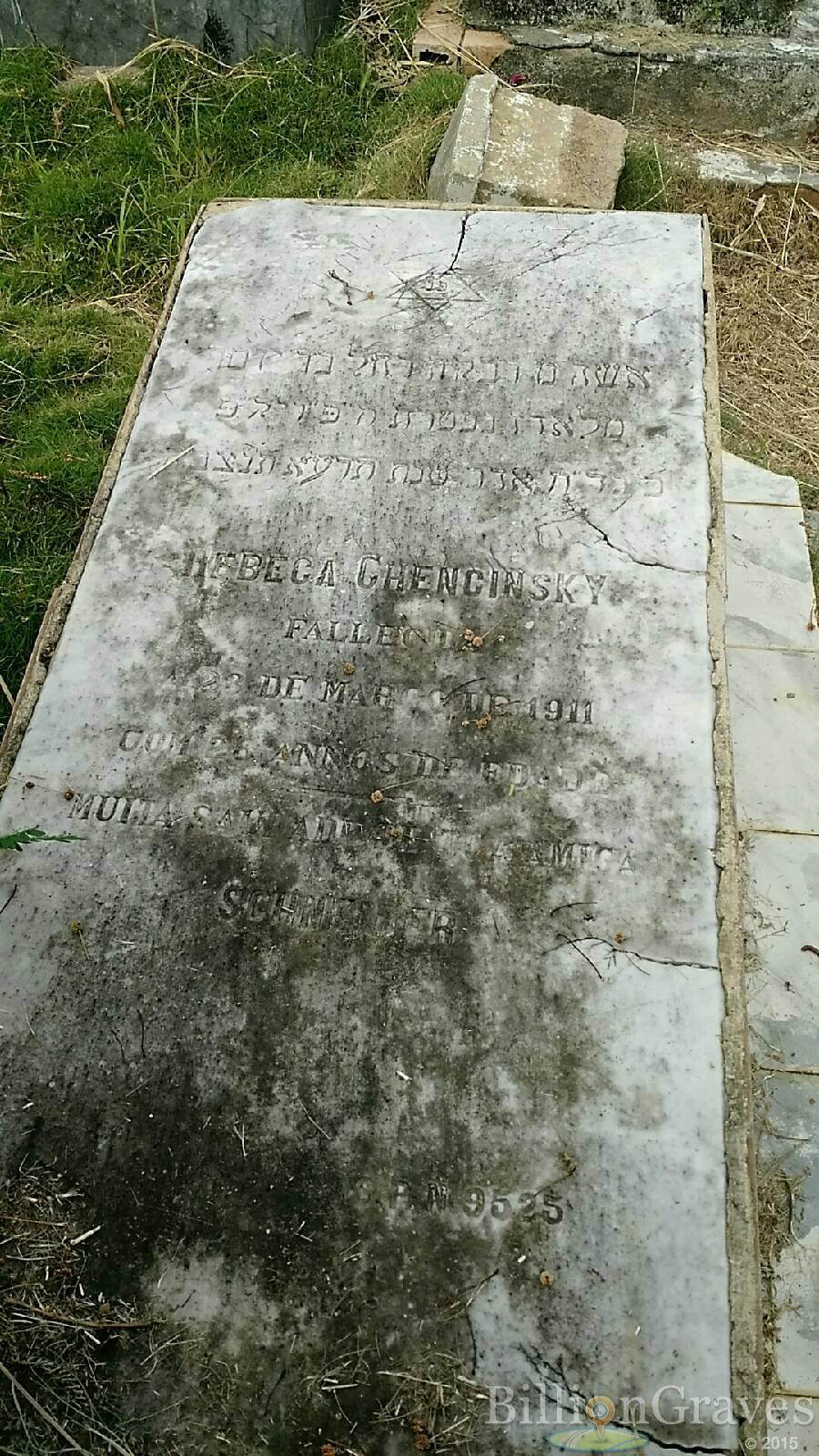
Wet, damp climates can cause mold to grow on gravestones, like this one from Amazonas, Brazil.
Amazonas is a huge state in northwestern Brazil that is covered almost entirely by the Amazon rainforest. The capital, Manaus, marks the spot called the “Meeting of Waters,” where the largest blackwater river in the world, the Rio Negro, and the Solimões River merge into the Amazon River.
All this moisture is hard on tombstones.
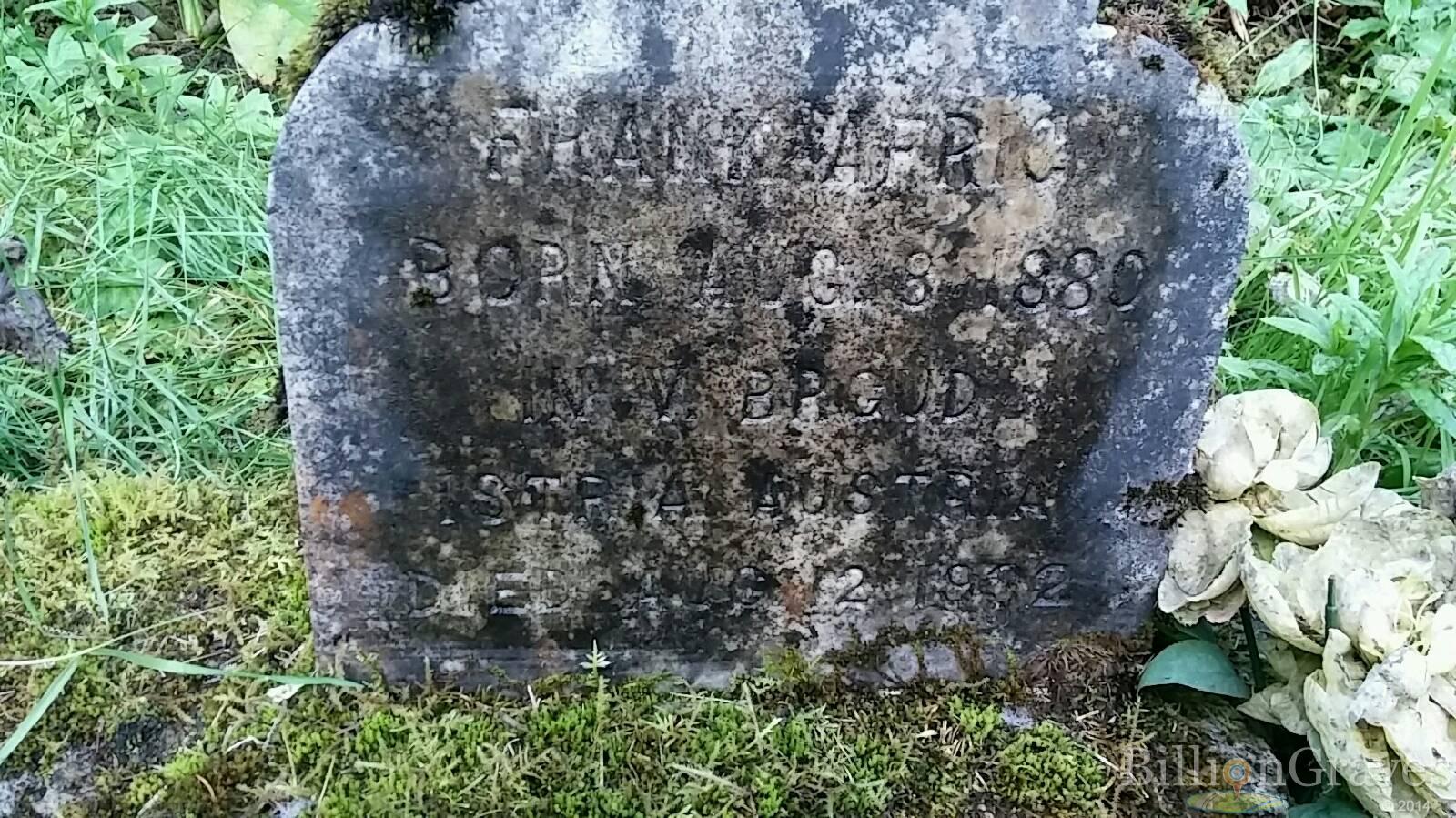
Gravestones like this one in Juneau, Alaska are exposed to both salty sea air and snow, causing black mold to grow on its surface.
Damaged Gravestones: Weathering
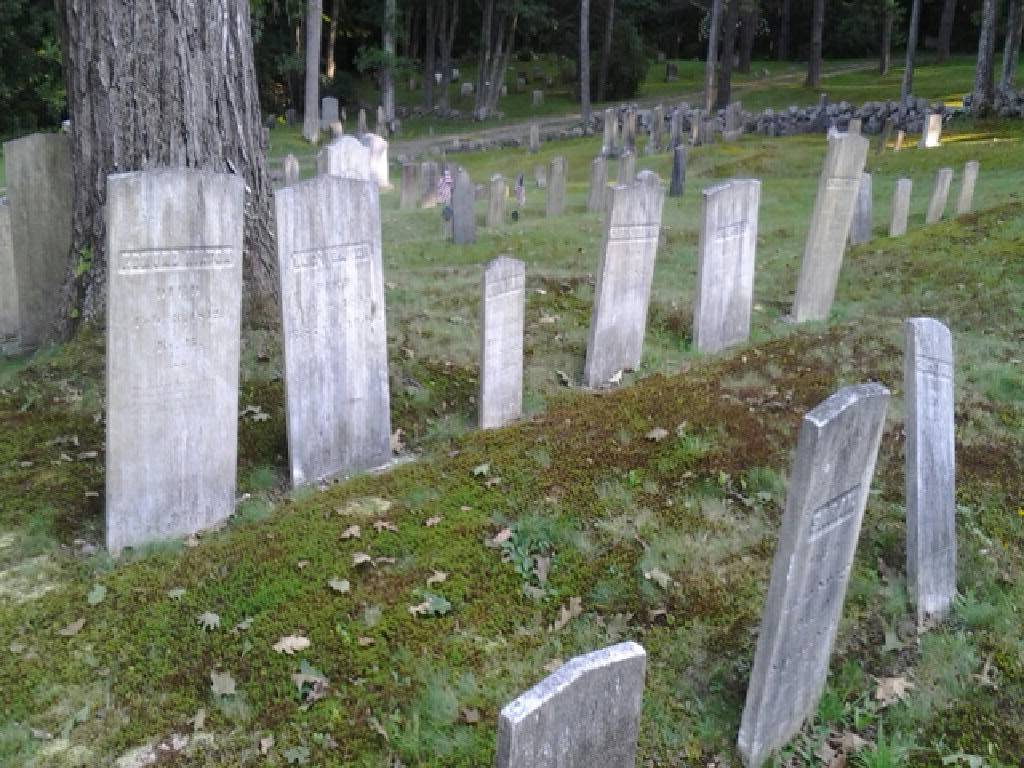
In the early stages, weathering from rain and wind can make names and dates difficult to read. Eventually, the lettering will disappear entirely.
Taking digital photos is the best way to preserve the data before it is too late. And the BillionGraves app will do more than that by adding a GPS location.
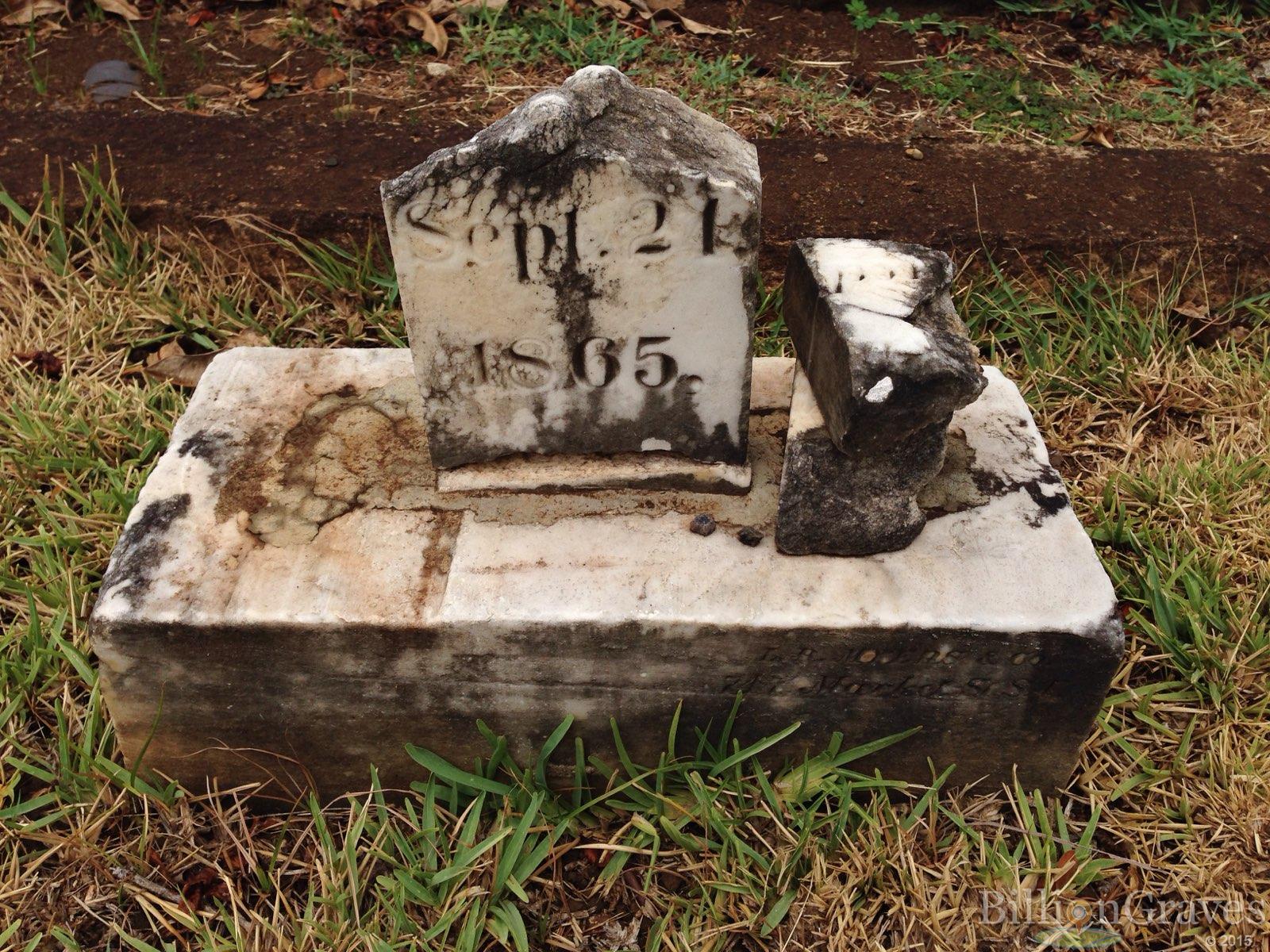
Prolonged weathering can wear a gravestone down completely like this marble gravestone from Hawaii erected in 1805.
Marble is an especially soft material for gravestones – so soft that it can even be scratched with a knife blade.
Marble is made from limestone, which is a type of sediment rock that contains calcium carbonate. The calcium carbonate reacts to acids, so acid rain can cause black stains on white marble.
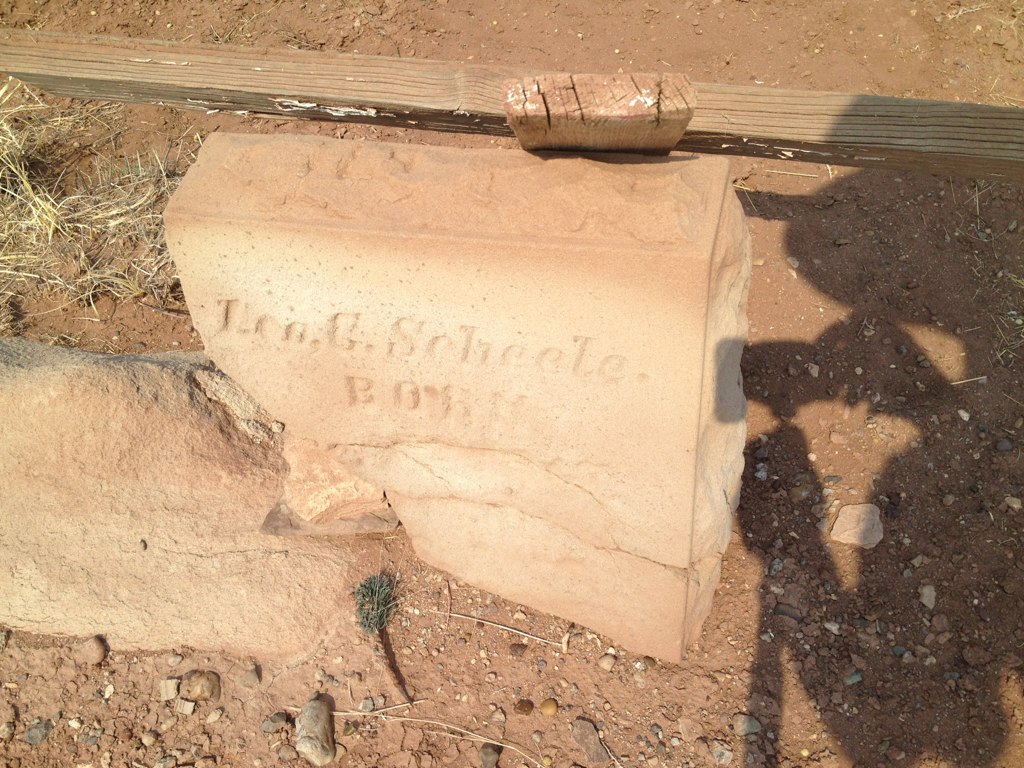
Sandstone is also an especially soft material for grave markers. It can deteriorate quickly, turning back into the sand from which it was formed.
Damaged Gravestones: Sinking
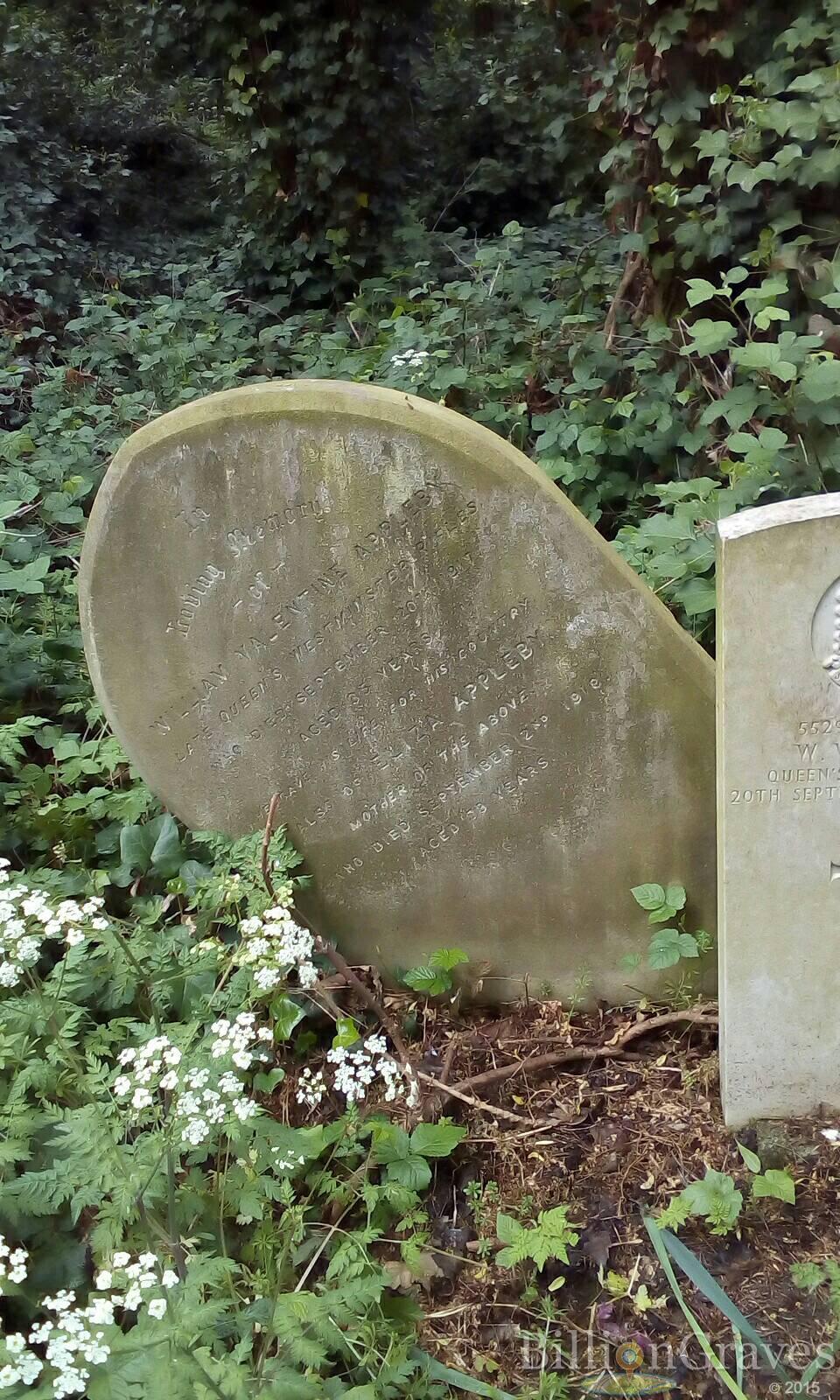
Over the years, a grave will sink as air pockets escape and the soil settles, especially in wet climates. Ground subsidence is more likely after flooding or excessive rainfall over a prolonged period of time.
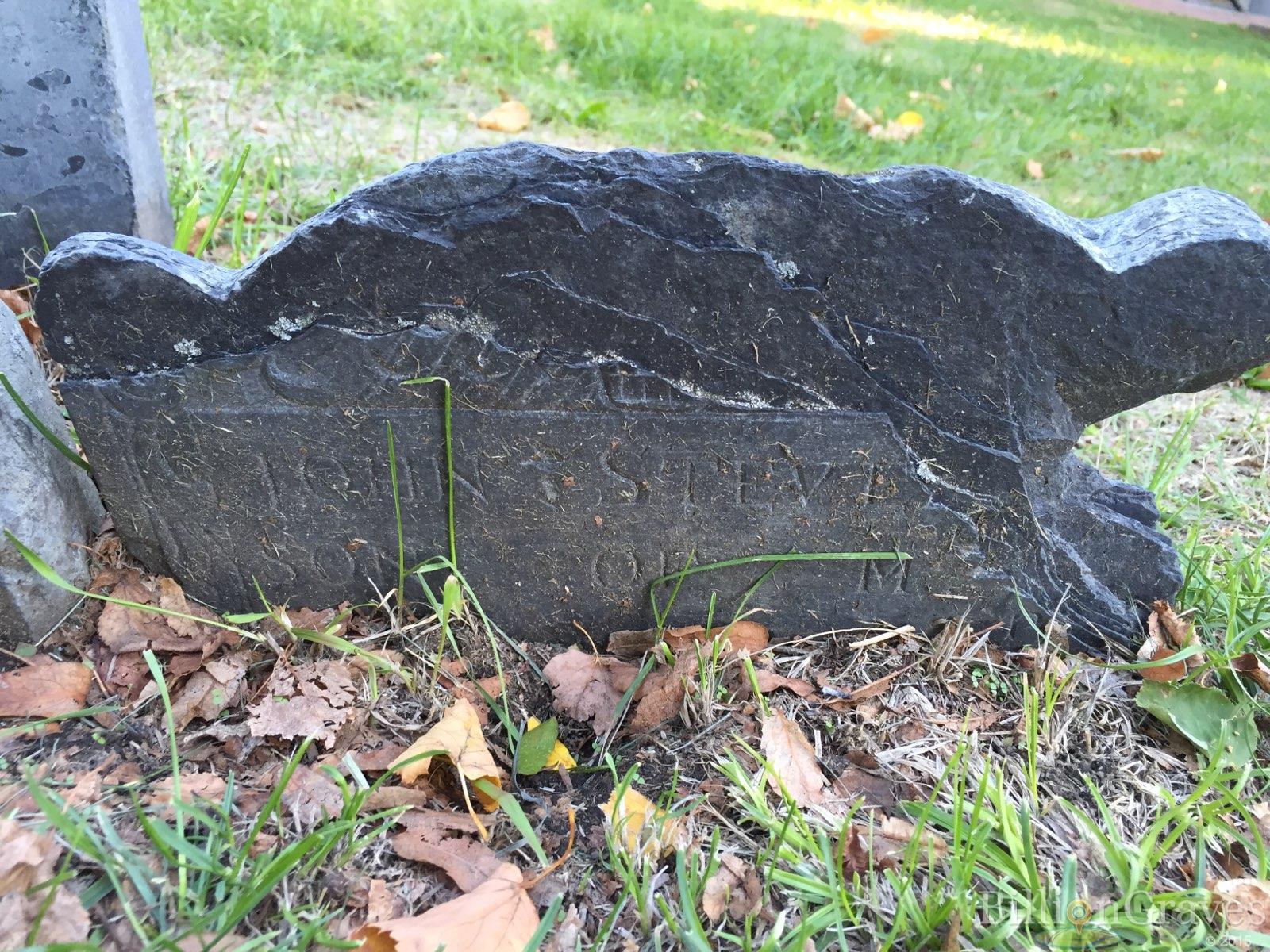
Today, many cemeteries require a year waiting period after burial for the ground to settle before placing a monument. In past generations, this waiting period was not required so gravestones often sunk into the ground as the soil settled and wooden coffins decayed.
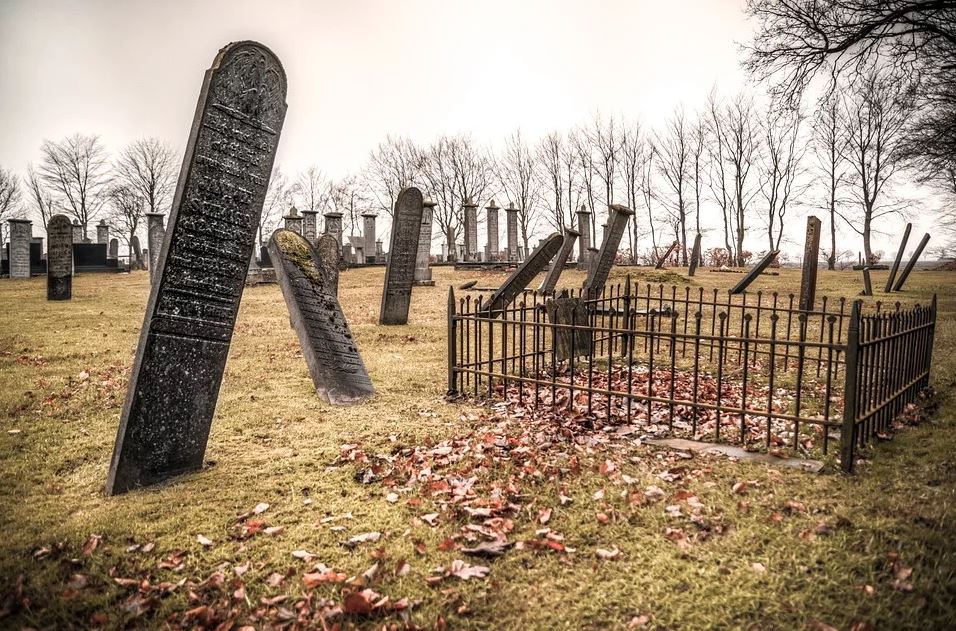
A cemetery may excavate thousands of gravesites. If they are poorly backfilled after the burial they will lean and sink over time.
Ultimately those leaning gravestones will be lying flat on the ground.
Some will land with the information facing upward, where rain and snow will pool around the letters, causing cracking and fostering biological growth.
Others will land face down, making it nearly impossible to lift the stone to read the inscriptions.
Damaged Gravestones: Rust
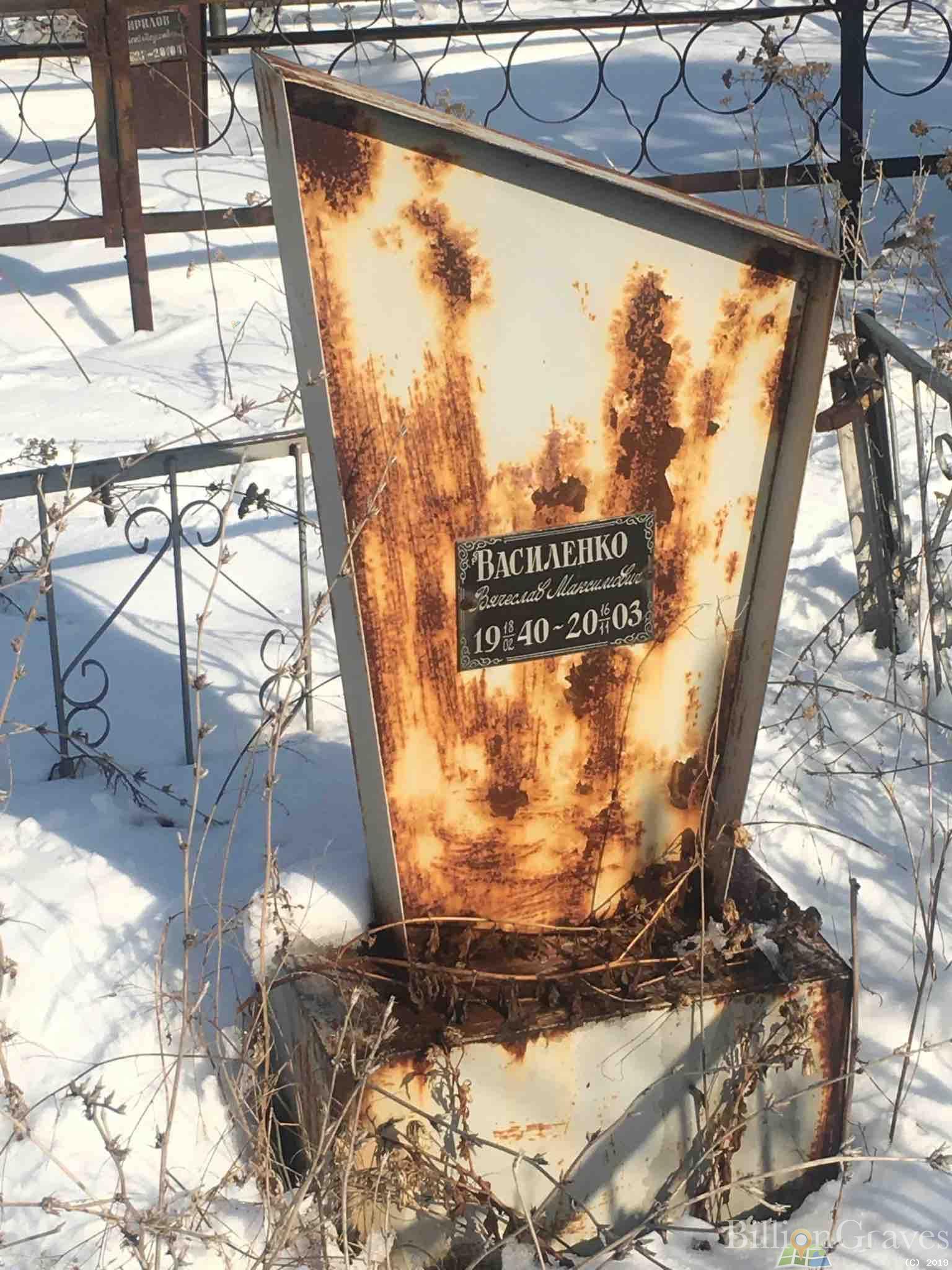
Metal gravestones like this one from Kazakstan are prone to rust.
Damaged Gravestones: Flaking
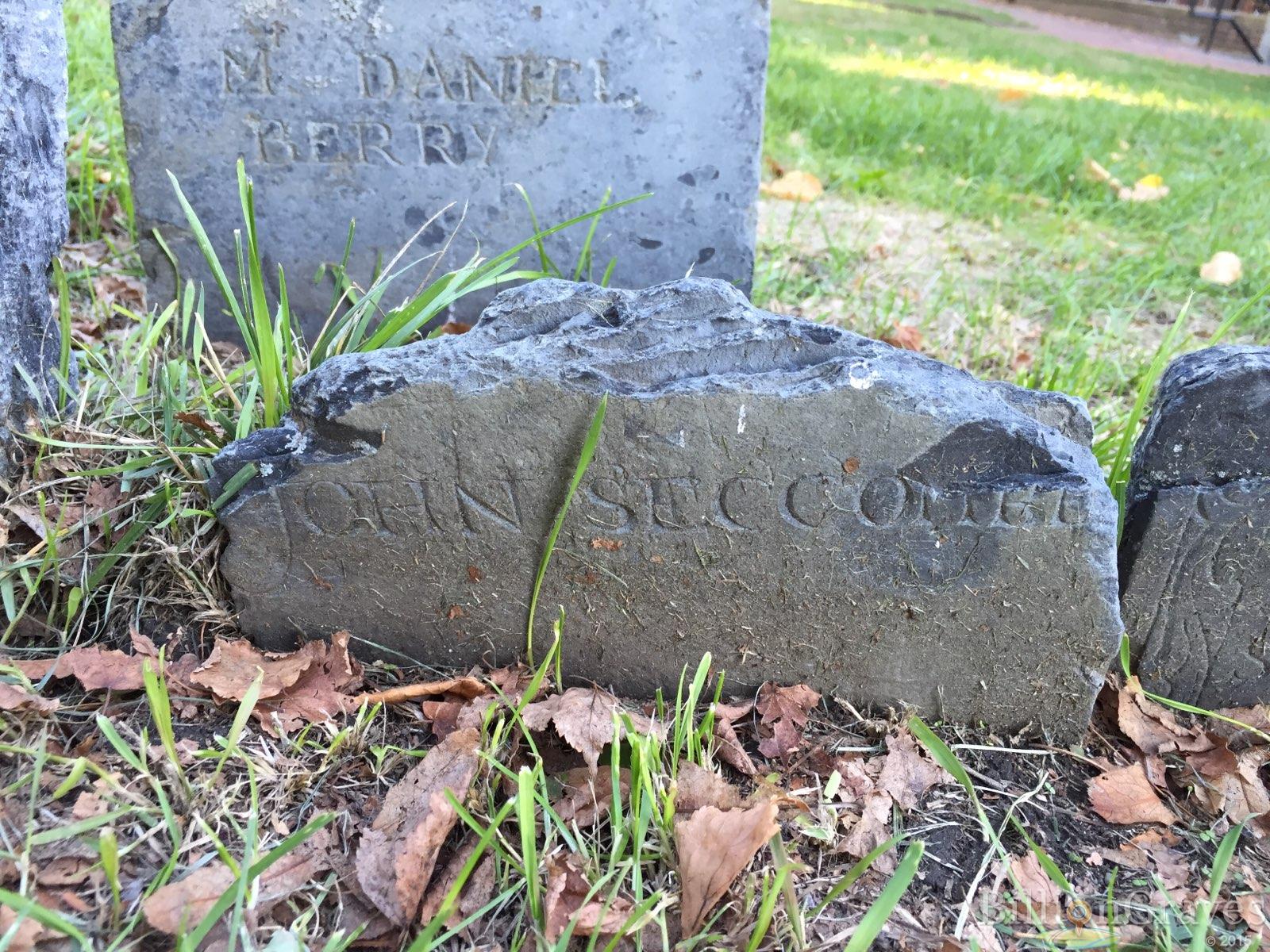
From 1650 to 1900, most of the gravestones in the Boston, Massachusetts area, like the memorial in the photo above, were carved from slate.
Slate is thin and has a tendency to flake and split. The engravings were often shallow, but are usually very readable as long as they do not flake off from the main part of the stone.
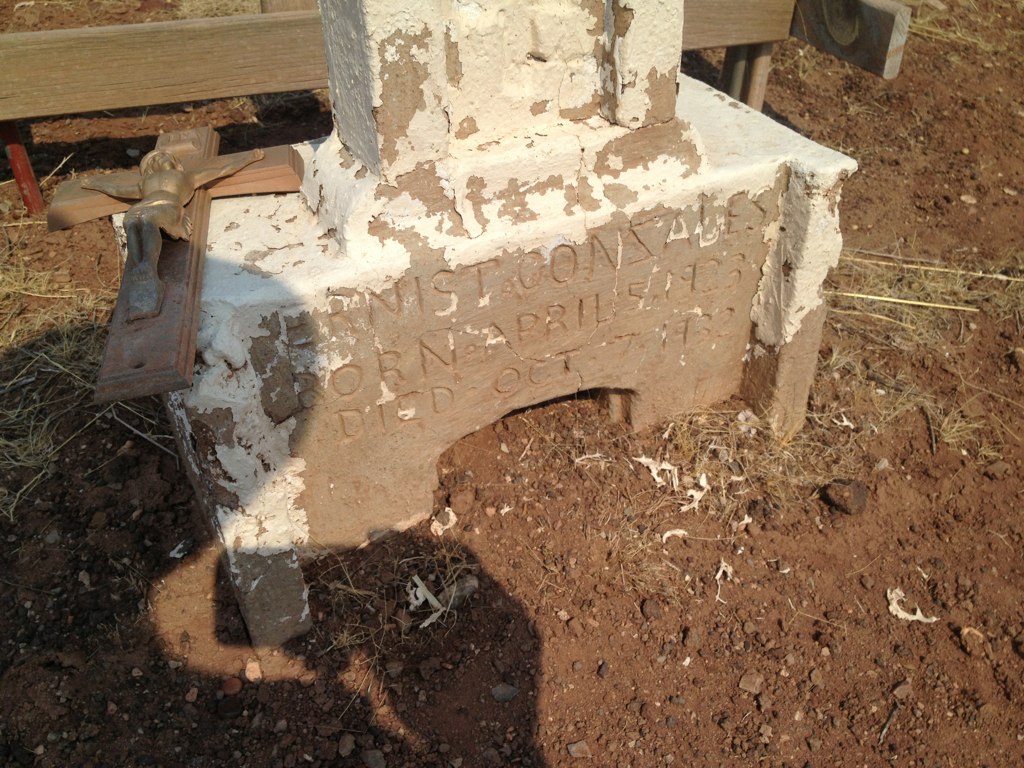
Paint is sometimes used to highlight unique features on gravestones and to make the lettering more legible.
But paint fades easily and also flakes off depending on the gravestone material and its exposure to rain, snow, and sunlight.
Damaged Gravestones: Vandalism
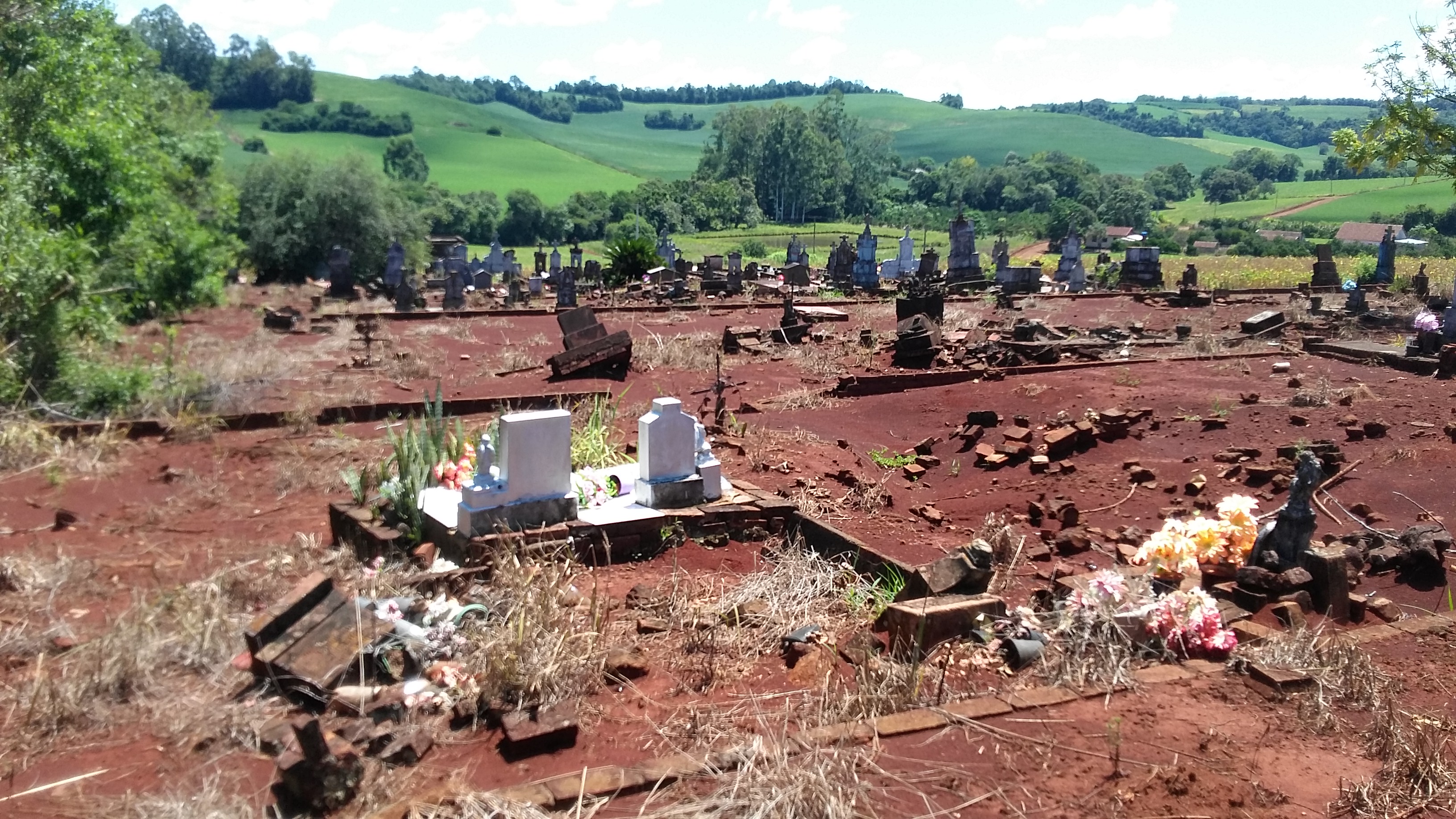
At first glance, it is hard to even tell that this is a picture of a cemetery, right?
You can see rows of gravestones along the back border of the red soil before the green grass begins.
There are also two white headstones in the foreground, but the rest of the gravestones have been knocked down and damaged by vandals.
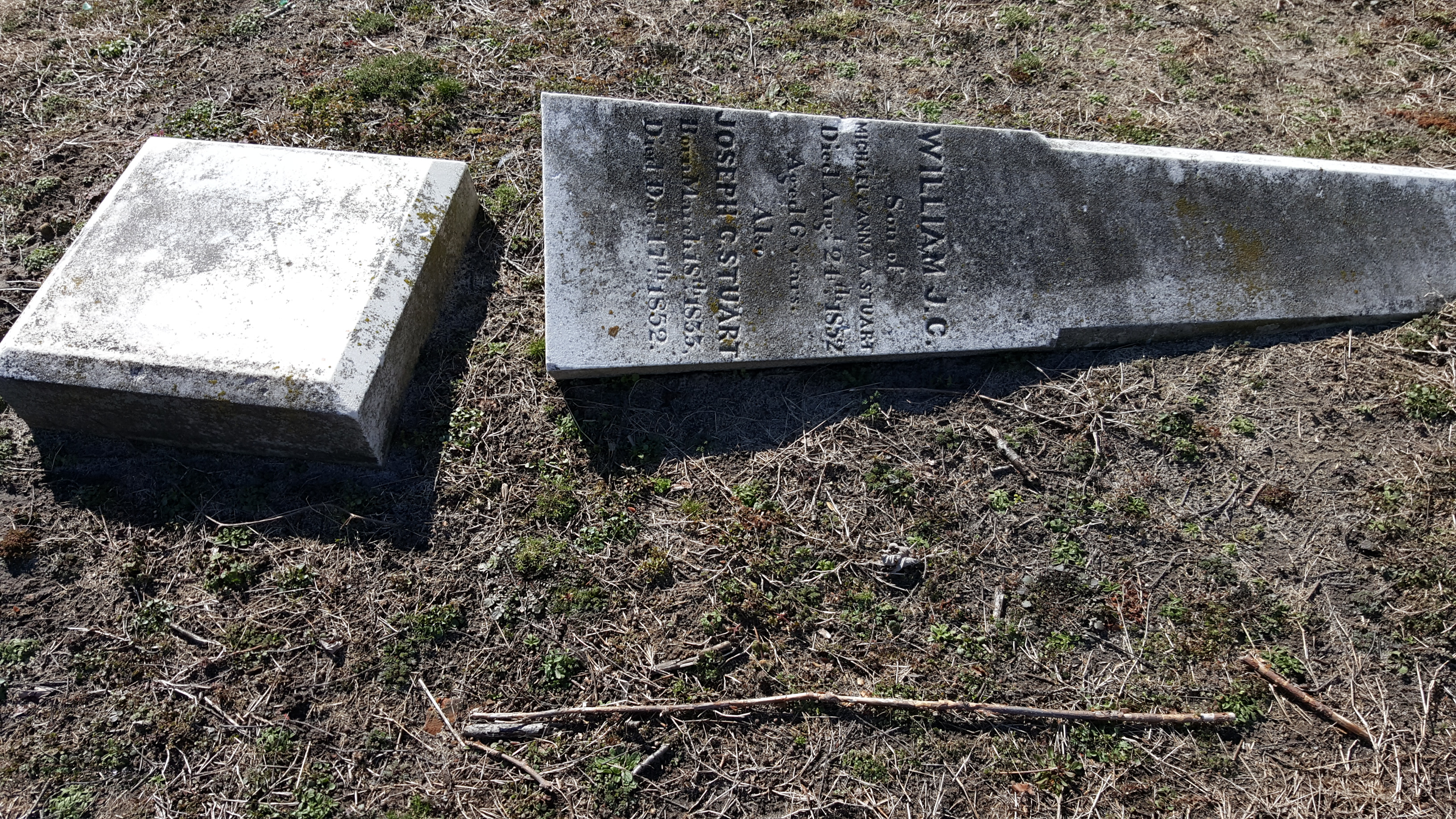
This gravestone is in Delaware. It was damaged in spite of the Delaware law that states, “A person who intentionally defaces, damages, pollutes or otherwise physically mistreats or desecrates a burial place is guilty of a class A misdemeanor and upon conviction shall be fined not less than $1,000 nor more than $10,000.”
Massachusetts law is even more strict, allowing for punishments of up to $5000 or 5 years in prison.
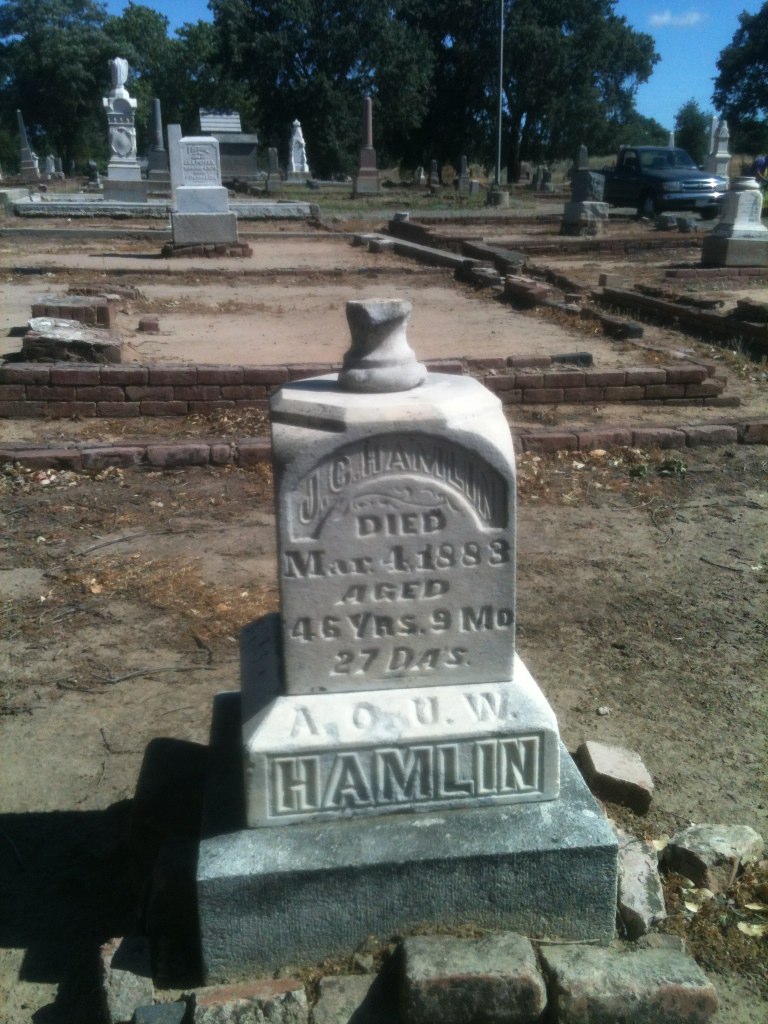
Sometimes it can be difficult to tell if a gravestone was purposefully harmed or if the damage was the result of nature’s forces. But when the destruction occurs overnight or to multiple gravestones, it becomes obvious.
Established in 1850, Marysville Cemetery in Yuba County California is the oldest city-owned cemetery west of the Mississippi River. Unfortunately, it has also been the frequent target of vandalism.
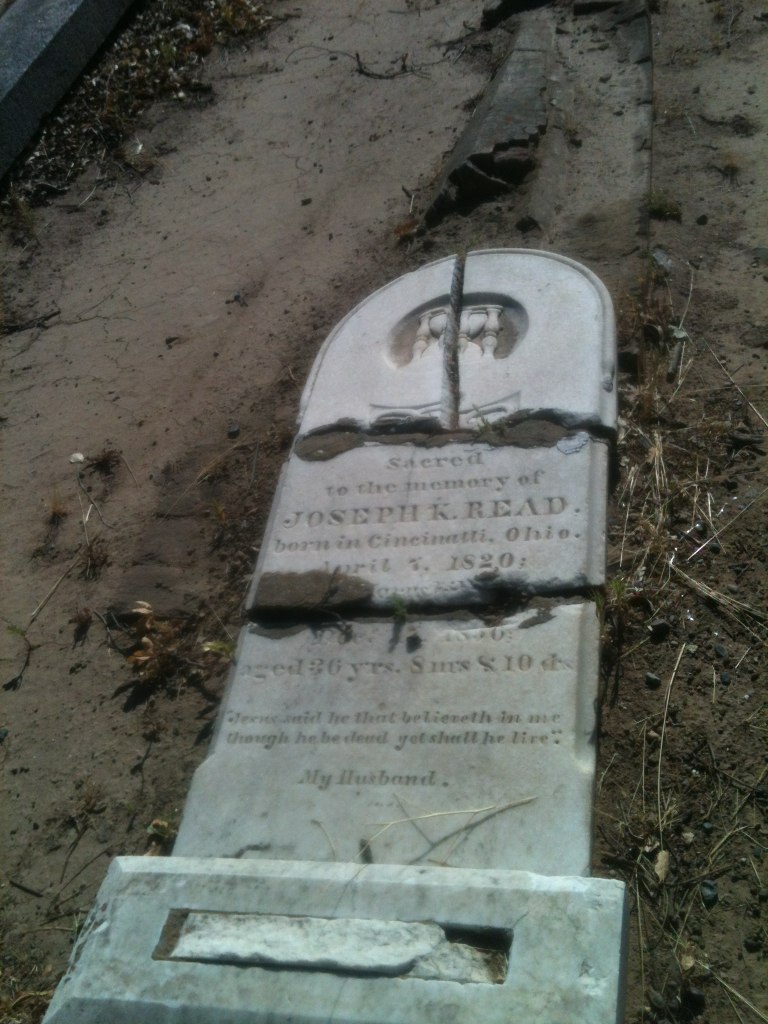
Marble gravestones like this one, also from Marysville cemetery, are particularly vulnerable to damage because they have a weak spot where the slab rests in the slotted base.
Ironically, this one has been split right through the hourglass or “sands of time” symbol. Indeed, time is running out for the preservation of many older cemeteries.
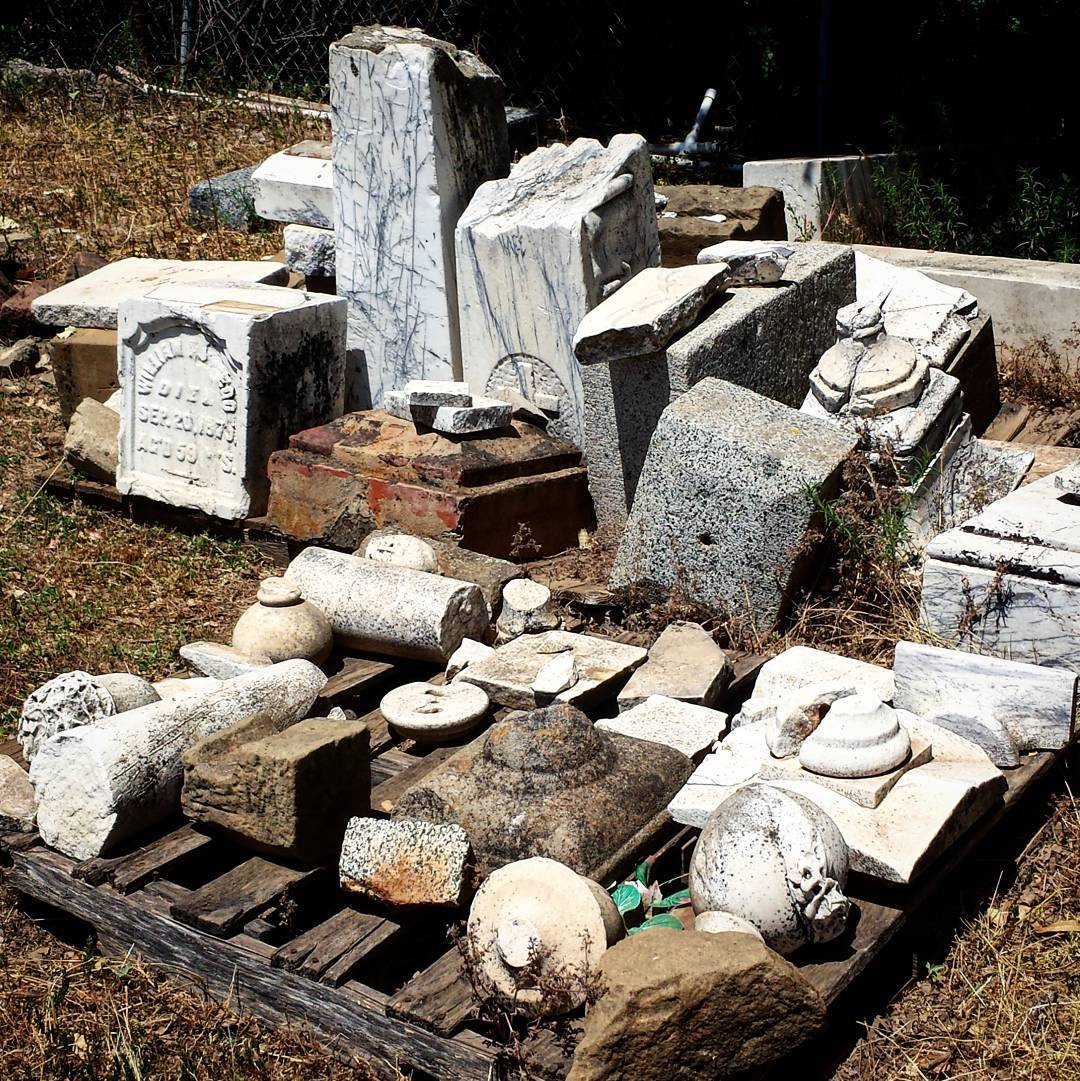
Broken granite and marble gravestone pieces lie on wooden pallets at the back of Marysville Cemetery.
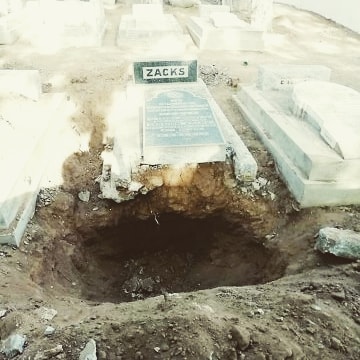
This gravesite in South Africa has been ravaged by grave robbers. In some cases, this is done by treasure-seekers. Other times, it is done by those seeking body parts to fulfill ritualistic voodoo practices.
Damaged Gravestones: Cemetery Regulations
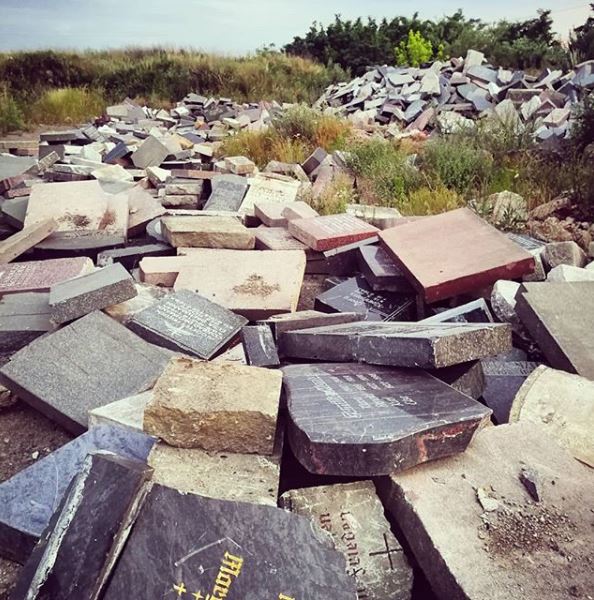
The gravestones in this pile were removed from gravesites in Erfurt, Germany. Why? Simply because it was someone else’s turn to use the plot of land.
Under German law, families may lease gravesites for 15 to 30 years at a cost of up to $5,000. The full 30 years is required for deceased adults, the amount of time it will usually take for the body to decay. Youth and children who have passed away may occupy the rented sites for less time.
Then if the family is unable, unwilling, or unavailable to renew the rental agreement – for up to $5,000 again – the remains are removed and the grave is relinquished to another family.
Shortly before the lease ends, a sticker is placed on the gravestones to remind families that time is running out. If no one responds, the remains in the graves are unearthed and buried a little deeper, Then the new grave tenant is placed nearer to the surface.
The gravestones – with all their precious data – are heaped into a pile. A “gravestone graveyard“, if you will.
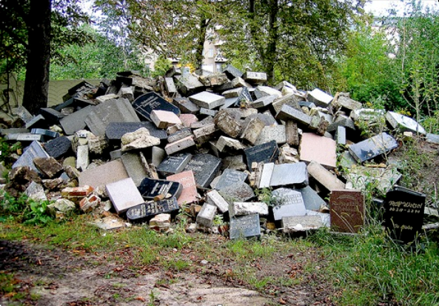
What will become of the gravestones in this rubble heap?
Families are entitled to them. But they weigh hundreds to thousands of pounds, so no one is going to pick them up in the trunk of their car or take them home on the bus.
And so the stones are usually recycled for building foundations, sidewalks, patios, stone walls, and even new gravestones.
It puts a new spin on the passage from Genesis, “For dust thou art, and unto dust shalt thou return.”
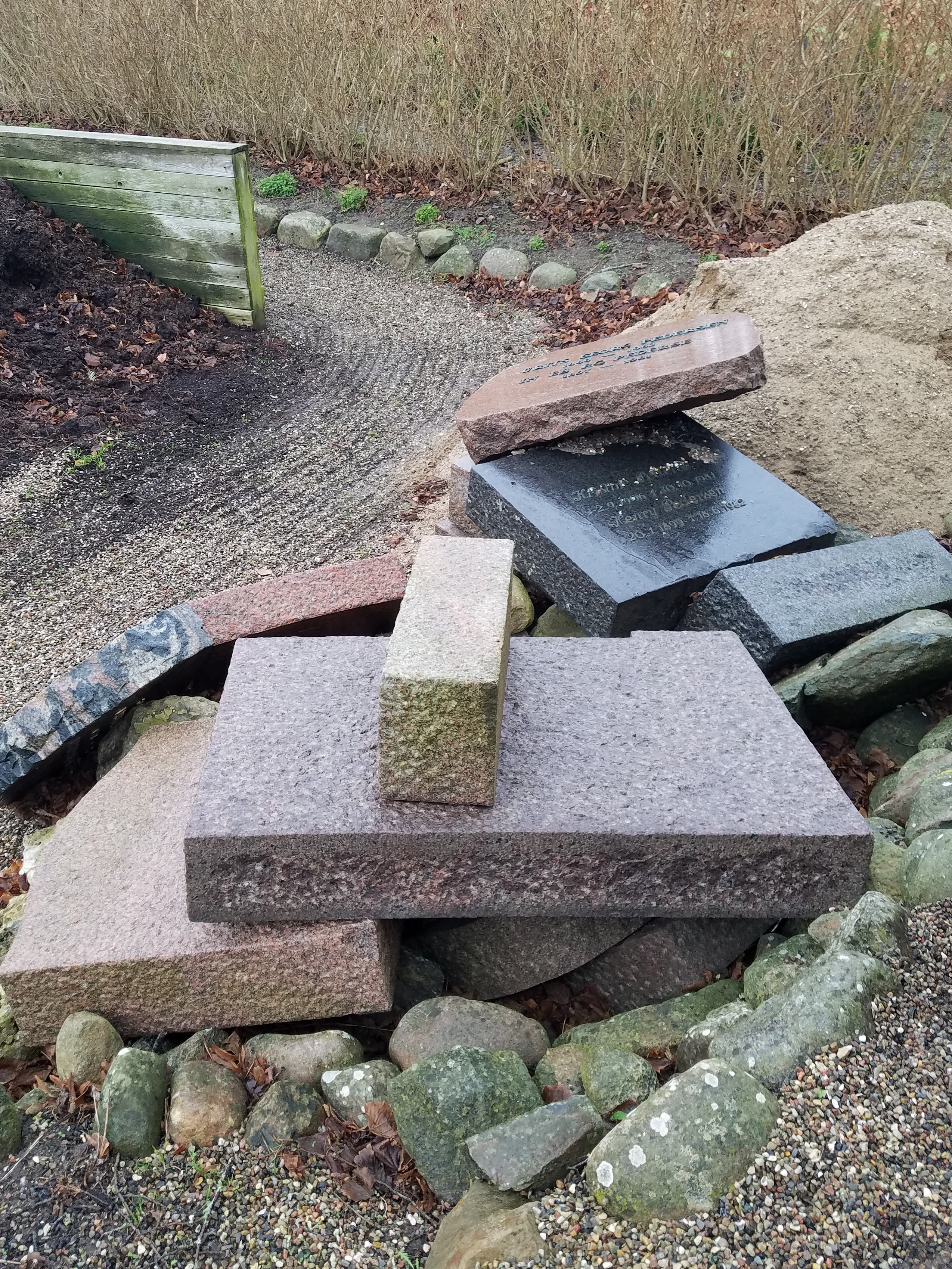
Germany is not the only nation that reuses gravestones for other purposes.
It was only in 2013 that the municipality of Lviv in Ukraine announced its decision to stop using Jewish headstones as paving materials for roads and sidewalks.
The headstones in the photo above are from a cemetery in Copenhagen, Denmark and they will be ground up for road resurfacing.
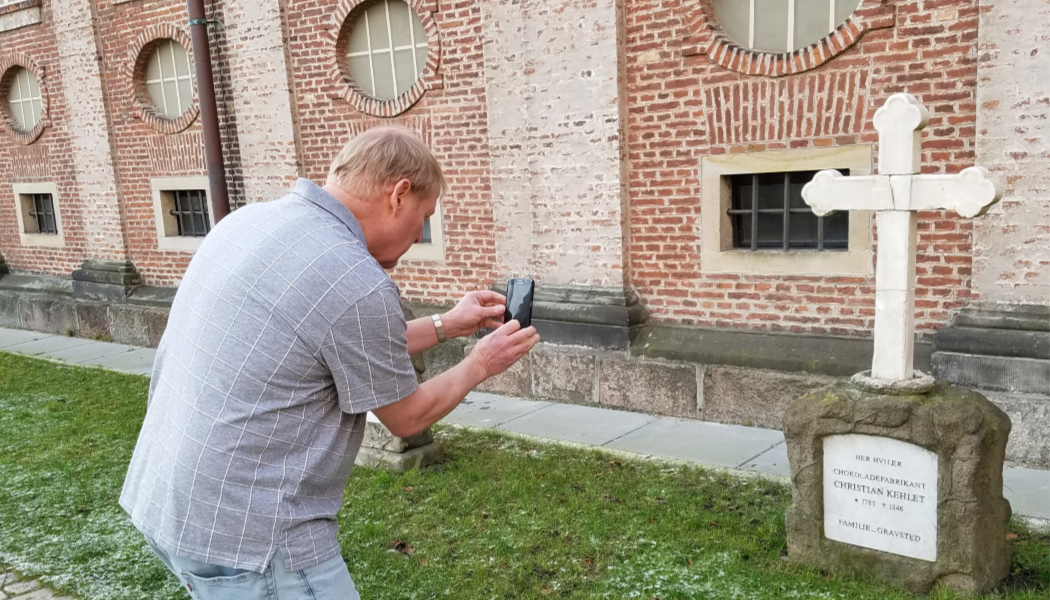
One of BillionGraves’ top photographers, Todd Hansen, was serving a church mission in Denmark with his wife when he realized that gravestones were being turned into gravel.
This startling news motivated Hansen to use the BillionGraves app to take photos of as many gravestones as he possibly could during his free time.
“If the headstones are not digitally recorded, they really are gone forever in less than one generation,” Hansen warned. “The clock is constantly ticking.”
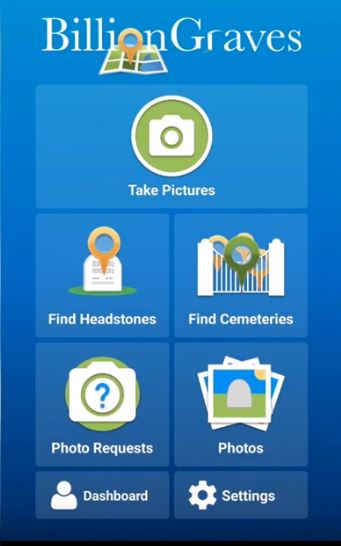
Volunteer
Have you ever taken a photo at a cemetery and wondered if that particular gravestone would even be legible by the next year? I know I have!
Whenever you take a photo of the precious data that is rapidly disappearing, you are preserving family memories! You are creating family connections and protecting legacies!
If you or your group would like to help preserve history by taking photos of gravestones click HERE to get started. You are welcome to do this at your own convenience, no permission from us is needed. If you still have questions or concerns after you have clicked on the link to get started you can email us at Volunteer@BillionGraves.com.
Happy Cemetery Hopping!
Cathy Wallace

